#artist is alfred petit
Explore tagged Tumblr posts
Text
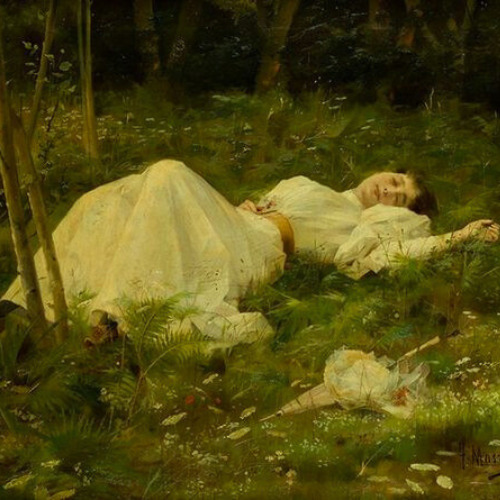
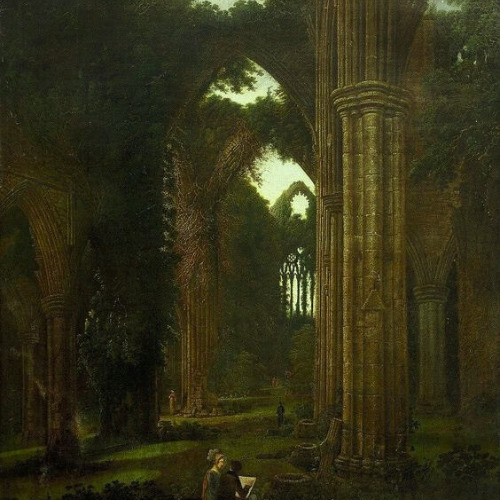
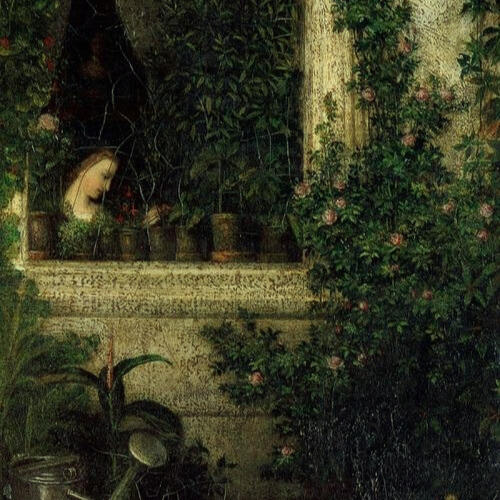


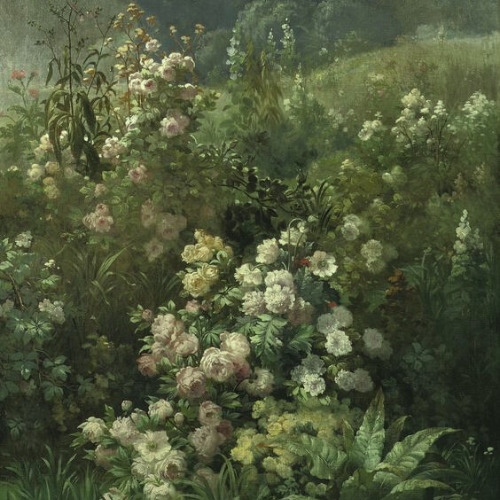

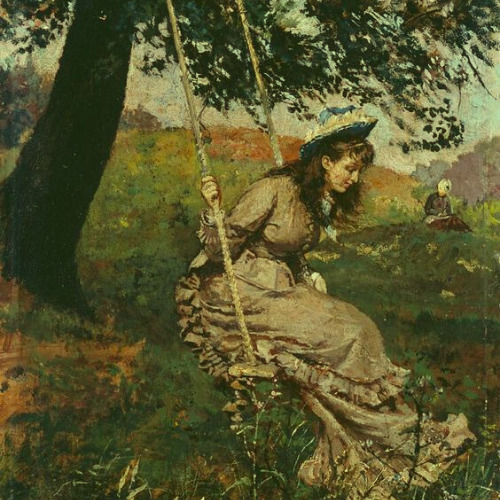
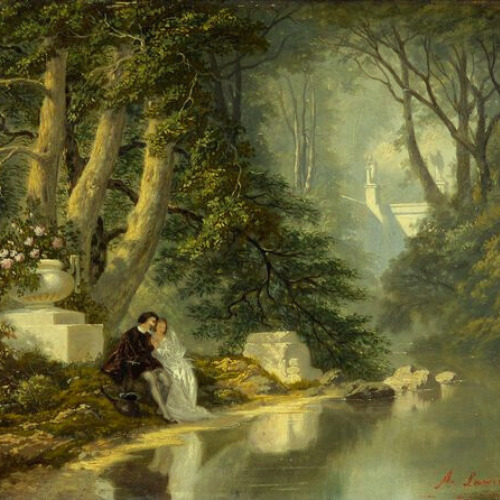
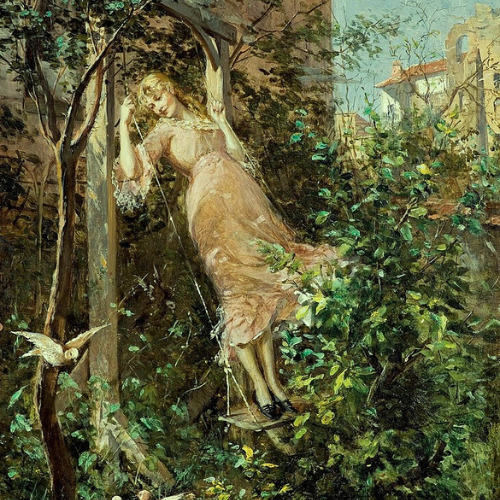
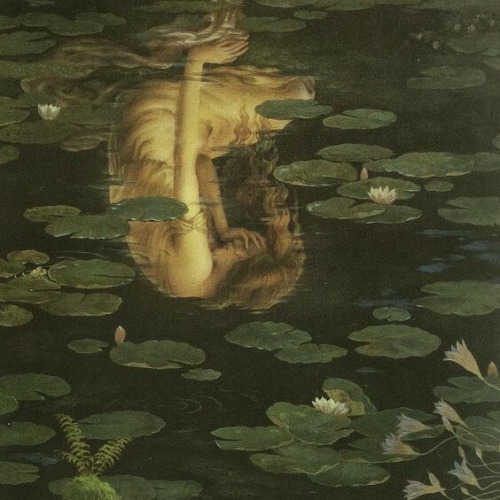

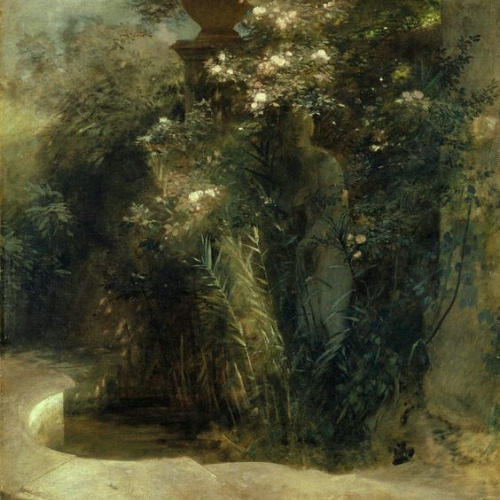
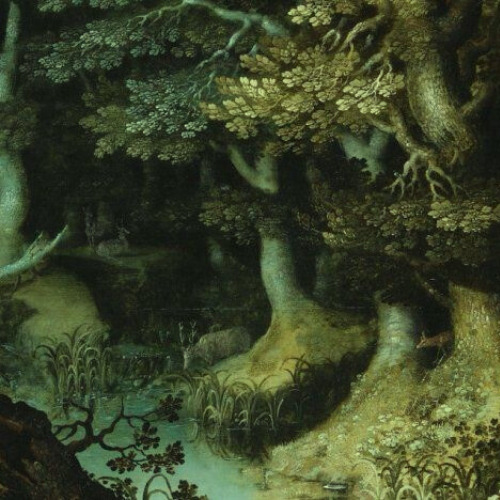

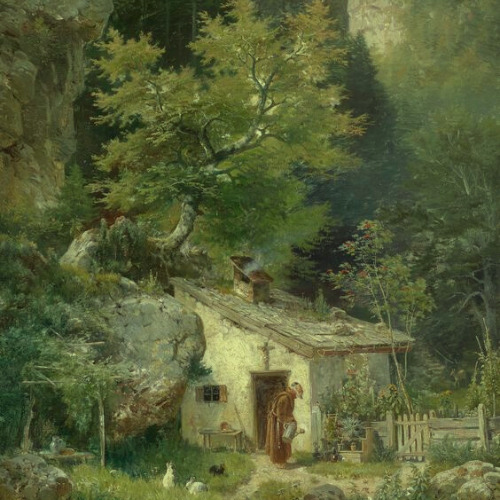
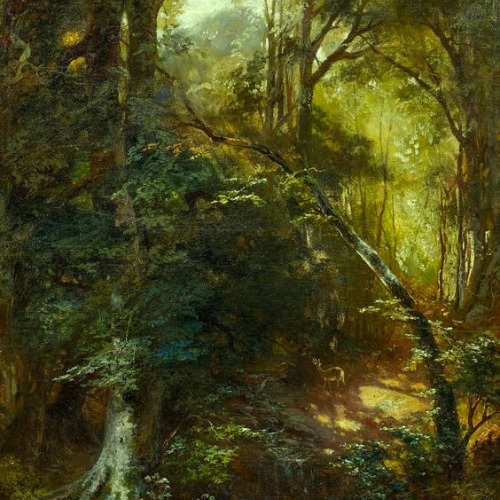


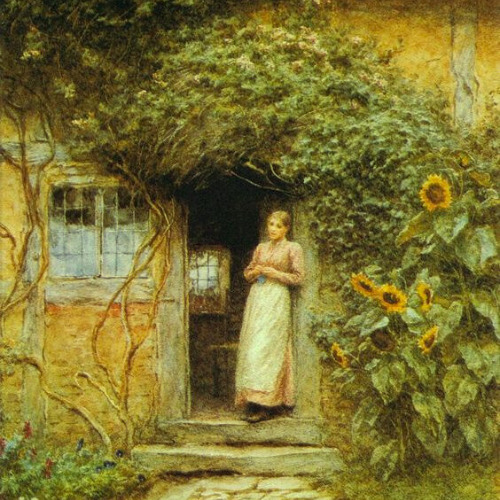
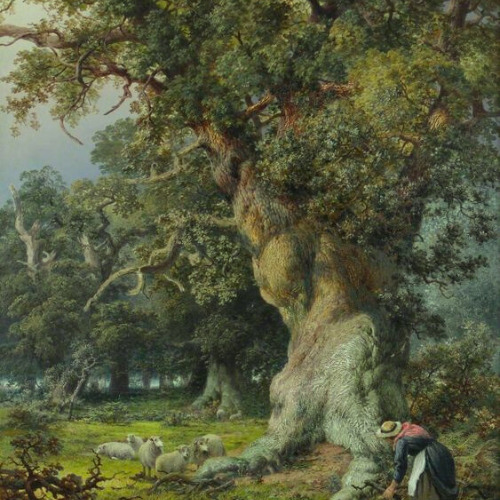
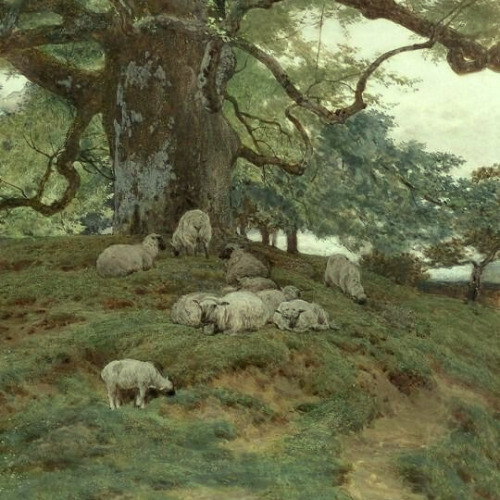
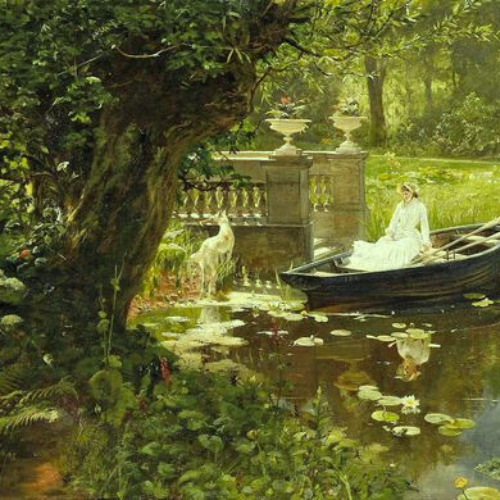
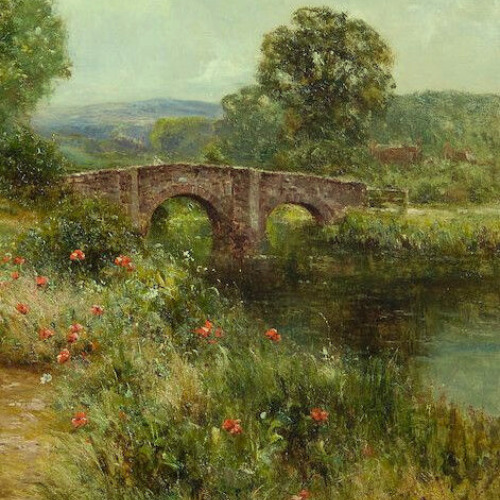
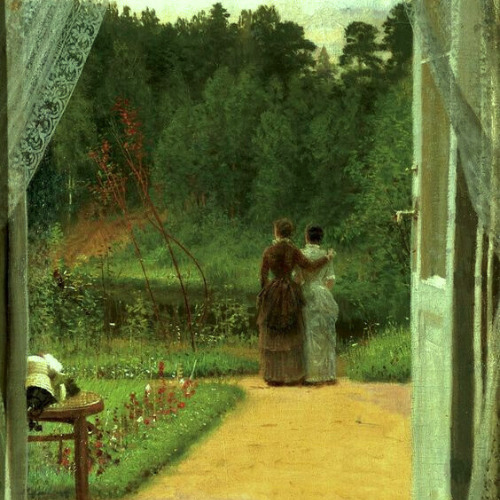

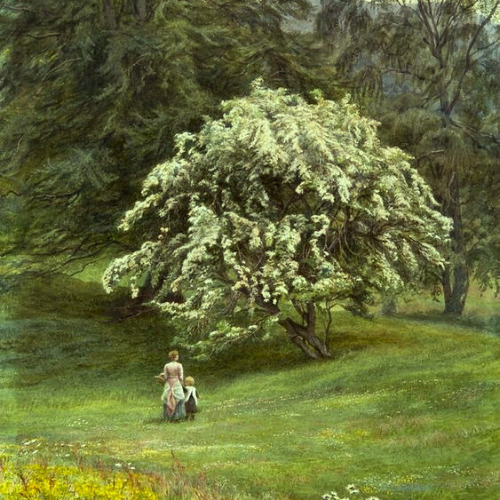

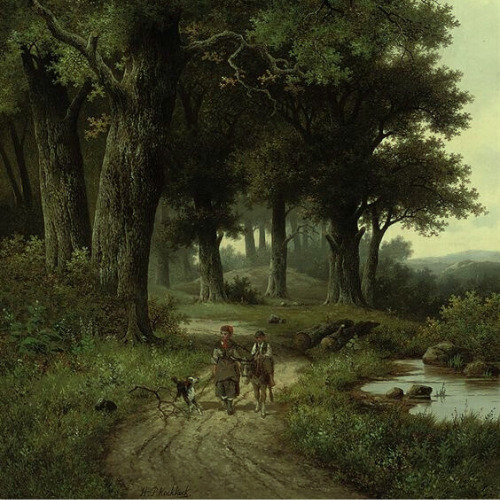

art aesthetics: cottagecore
#artist is francesc masriera#artist is samuel colman#artist is karel purkyne#artist is jan frederik pieter portielje#artist is giuseppe camino#artist is alfred petit#artist is gelhay edouard#unknown artist#artist is albert f laurens#artist is paul mewart#artist is kinuko y craft#artist is peter gardiner#artist is arnold bocklin#artist is cirosata bolarc#artist is hermann heinrich#artist is ludwig sckell#artist is carl ebert#artist is robert zund#artist is robert payton reid#artist is helen allingham#artist is frederick henry henshaw#artist is john dawson watson#artist is gustav marx#artist is ernest walbourn#artist is ivan nikoaevich kramskoy#artist is henry john yeend king#artist is edith martineau#artist is peter ludgwig kuhnen#artist is hendrik pieter koekkeok#artist is emil jakob schindler
647 notes
·
View notes
Text
LÉGENDES DU JAZZ
JACK WALRATH, LE ALFRED HITCHCOCK DE LA TROMPETTE JAZZ
Né le 5 mai 1946 à Stuart, en Floride, Jack Arthur Walrath a commencé à jouer de la trompette à l’âge de neuf ans alors qu’il vivait dans la petite ville d’Edgar, au Montana. Walrath avait attribué son ouverture à différents styles musicaux au manque de pression négative de ses pairs, ce dont il n’aurait pu bénéficier s’il avait vécu dans une grande ville.
Après avoir obtenu son diplôme du Joliet High School en 1964, Walrath avait étudié à la Berklee School of Music où il avait décroché un diplôme en composition en 1968. Parallèlement à ses études, Walrath avait également joué dans des groupes scolaires et accompagné des chanteurs de rhythm & blues.
DÉBUTS DE CARRIERE
Après s’être installé sur la Côte ouest en 1969, Walrath avait co-dirigé les groupes Change (avec le contrebassiste anglais Gary Peacock) et Revival (avec le tromboniste Glenn Ferris). Il avait aussi joué avec le West Coast Motown Orchestra et fait une tournée des États-Unis avec Ray Charles.
En 1970, Walrath était déménagé à New York. À son arrivée à New York, Walrat avait d’abord travaillé durant un an et demi comme chroniqueur pour le magazine International Musician and Recording World. Il avait aussi écrit des articles pour le magazine spécialisé DownBeat. Walrath avait passé les quelques années suivantes à travailler avec des groupes de jazz latin et mainstream.
En 1974, Walrath avait enregistré les albums Changes One et Changes Two avec Charles Mingus. Ce dernier album comprenait une composition de Walrath intitulée "Black Bats and Poles". La pièce avait d’abord été intitulée "Rats and Moles" jusqu’à ce que Mingus décide d’adopter un titre plus sombre. Walrath avait fait partie du groupe de Mingus de 1974 à 1979, ce qui lui avait permis d’obtenir une large reconnaissance. Dans le cadre de sa collaboration avec le groupe, Walrath avait contribué à certains arrangements, plus particulièrement sur les derniers albums de Mingus.
ÉVOLUTION RÉCENTE
Dans les années 1980 et 1990, Walrath avait dirigé ses propres groupes et participé à une tournée en Europe avec l’ancien batteur de Mingus Dannie Richmond et le groupe britannique Spirit Level. Parmi les groupes que Walrath avait dirigés, on remarquait The Jack Walrath Group, Wholly Trinity, Hard Corps et The Master of Suspense. Il avait également dirigé un quintet avec le contrebassiste Paul Jackson et le batteur Mike Clark. Jackson et Clark avaient éventuellement quitté le groupe pour se joindre aux Headhunters de Herbie Hancock.
En plus de collaborer avec le groupe Superband de Charlie Persip et le pianiste d’avant-garde Richard Abrams, Walrath avait aussi aidé à garder la musique de Mingus bien vivante comme leader du groupe Mingus Dynasty et du Charles Mingus Big Band. Il avait d’ailleurs dirigé la composition inédite de Mingus ‘’Epitaph’’ avec le Tucson Jazz Society Orchestra. À la fin de sa carrière, Walrath avait enregistré et voyagé en tournée avec le groupe Jazz Tribe, Ray Anderson, Larry Ellis, George Gruntz et Sam Rivers, ainsi qu’avec son groupe Masters of Suspense. Il avait aussi participé à des projets spéciaux en Europe et aux États-Unis.
Les derniers enregistrements de Walrath comme leader et accompagnateur lui avaient permis de collaborer avec des groupes et des artistes comme UAJO, Zel Eduardo (au Portugal), Bill Moring, Lindsay Horner et le Mingus Big Band. Un des plus récents albums de Walrath, intitulé ‘’Invasion of the Booty Shakers’,’ a été publié en 2001 par Savant Records. En janvier 2008, Walrath avait fait une tournée en Italie avec son quintet. Intitulée ‘’The Spirit of Mingus’’, la tournée avait été très bien accueillie par le public et la critique. Walrath avait enregistré par la suite plusieurs albums pour l’étiquette danoise Steeple Chase, dont ‘’Ballroom’’, Heavy Mirth’’ (publiés tous deux en 2008), Forsooth (2011), To Hellas and Back (2013) et Unsafe at Any Speed (2015).
Au cours de sa carrière, Walrath a enregistré vingt-deux albums comme leader en plus de travailler comme accompagnateur avec de nombreux autres artistes, dont Charles Mingus, Ray Charles, Muhal Richard Abrams, Ricky Ford, Sam Rivers, Joe Morello, Mike Clark, Charlie Persip, Miles Davis, Quincy Jones, Ray Anderson, Craig Harris, Pete LaRoca, Mike Longo, Elvis Costello, Larry Willis, George Gruntz, Paul Jeffrey, Gunther Schuller, Hal Galper, Richie Cole, le groupe Jazz Tribe, Joe Lovano, le WDR Big Band, Jamaaladee Tacuma, Lou Rawks, le Monk Tentet, Bobby Watson et plusieurs autres. Walrath a collaboré avec de nombreuses maisons de disques, dont Gatemouth, Stash, Steeple Chase, Red, Muse, Spotlite, Blue Note et Mapleshade. Walrath avait également fait l’objet de reportages dans pratiquement tous les magazines de jazz majeurs, dont Jazziz, Down Beat, Music Review, Jazz Times, Cadence, Music Paper, Hot House, Jazz Emporium et Jazz Forum.
Véritable ‘’maître du suspense’’ un peu à la manière d’Alfred Hitchcock, Walrath avait toujours eu plusieurs tours dans son sac. Comme compositeur, Walrath avait écrit des arrangements et du matériel original pour de nombreux groupes et artistes, dont Charles Mingus, Red Rodney, Ira Sullivan, Cecil Brooks III, le Brooklyn Symphony Orchestra, les WDR et NDR Big Bands, l’UMO Orchestra, le Catalina City Jazz Orchestra, le Charlie Persip Superband et l’Upper Austrian Jazz Orchestra. Walrath avait aussi joué comme musicien invité lors de l’émission de radio qui avait marqué le 50e anniversaire du NDR Big Band. Walrath avait également écrit la trame sonore de la série policière Homicide: Life on The Street et du NBC Mystery Movie de Bill Cosby. Walrath était aussi l’auteur de compositions de longue durée comme “Life’s Times”, une suite en cinq mouvements composée des parties suivantes: Inception, Inculcations, Romance, Prudence et (Coda) Do Not Go Gently.
Récipiendaire de nombreuses bourses, Walrath avait vu plusieurs de ses oeuvres être commanditées par des organismes comme la National Endowment for the Arts (NEA), la Aaron Copland Composition Grand, la Quad City Arts et le Mary Flager Cary Trust.
Comme pédagogue, Walrath avait rédigé un manuel d’instruction qui avait été publié par Advance Music. Il a aussi animé des séminaires aux États-Unis, en Italie, en Espagne, au Portugal, au Japon, en Israël, en Finlande et au LaGuardia High School of the Performing Arts. Walrath avait également animé des classes de maîtres et des cliniques à la Manhattan School of Music, à l’Université de New York, à la New School for Social Research, dans plusieurs États américains et dans d’autres pays et conservatoires à travers le monde. Professeur accompli, Walrath avait enseigné à tous les groupes d’âge, de l’âge de trois ans jusqu’à l’âge adulte, que ce soit au Quad City Arts, au LaGuardia High School of the Performing Arts et au Myrna Loy Arts Center. Plus récemment, Walrath avait également travaillé au Litchfield Jazz Camp et à la New School for Social Research. En 2009, il s’était aussi produit comme artiste et instructeur au festival Sienna Jazz en Toscane. Walrath travaillerait actuellement sur une autobiographie dans laquelle il décrit ses expériences comme musicien, compositeur et collaborateur de Charles Mingus. L’album de Walrath ‘’Master of Suspense’’ (1986) a été mis en nomination pour un prix Grammy.
©-2025, tous droits réservés, Les Productions de l’Imaginaire historique
SOURCES:
RUCHARDS, Stephanie. ‘’Interview with Jack Walrath.’’ Festival Of New Trumpet Music, 2024.
‘’Jack Walrath.’’ Wikipedia, 2024.
‘’Jack Walrath.’’ All About Jazz, 2024.
1 note
·
View note
Text
I)1999: Melt-Banana: Charlie (A-Zap records)
Taraf de Haidouks: Honorable Brigands, Magic Horses & Evil Eye (Crammed Discs)
Rahsaan Roland Kirk: Natural Black Inventions-Root Strata (Atlantic)
Germs: Complete Anthology (Slash) II)2000:
"A Patch of Blue"--soundtrack, Jerry Goldsmith (Mainstream Records)
Rachmaninov--Variations on a theme by Corelli, Op. 42 (Ashkenazy; Decca Records)
Darius Milhaud--Six Petites Symphonies (Koch International)
Jerry Reed--Oh What a Woman! (RCA)
Futurism & Dada Reviewed (Sub Rosa) III)2000:
The Gil Evans Orchestra: Into the Hot (Impulse)
The Best of Godzilla 1954-1975 (GNP Crescendo)
Marvin Gaye: Troublemansoundtrack
The Hammer Quatermass Film Music Collection (GDI)
Luigi Nono: Como una ola de fuerza y luz (Deutsche Grammaphon) IV)2001:
SHOSTAKOVICH PLAYS SHOSTAKOVICH---7 preludes & fugues for piano (Hall of Fame)
THE THOMAS CROWN AFFAIR SOUNDTRACK---Michael Legrand (United Artists)
THE CARETAKERS SOUNDTRACK---Elmer Bernstein (AVA)
KAGEL: "1898" & Music for Renaissance Intruments. (Deutsche Grammaphon 20/21) V)Spring 2002 (26 March, 2002):
Pink Floyd: Atom Heart Mother (Capitol)
The Beach Boys: Hawthorne, CA (Capitol)
The Omen-Deluxe Editon(soundtrack): Jerry Goldsmith(Varese Sarabande)
Erik Sanko: Past Imperfect, Present Tense (JetSet)
Intestinal Disgorge: Drowned in Rectal Sludge (Lofty Storm) VI)Winter 2003:
The Outer Limits (TV Soundtrack)--Dominic Frontiere (Crescendo)
Fado de Lisboa 1925-1936 Vol. 1 (Heritage)
Edgard Varese: The Complete Works (London)
Furry Lewis, Bukka White and Friends: Party! At Home (Arcola)
Goblin: Zombi--Dawn of the Dead (Cinevox) VII)Summer 2003:
Sammy Davis Jr: The Wham of Sam (Reprise)
The Tony Williams Lifetime: Emergency! (Verve)
Stravinsky: Threni (Stravinsky conducting) (Columbia)
Black Music of South America: In Praise of Osala And Other Gods (Nonesuch)
Swans: Filth/Body to Body, Job to Job (Young God Records) VIII)Spring 2004:
Alfred Schnittke: String Quartet #4--the Alban Berg Quartet (EMI)
Funkaphonix vol 1-6 (Electrostatic Records)
Simon Diaz: Tonadas (Palacio)
The Wailers: KSAN Live Broadcast Oct 1973 (bootleg)
Julian Bream plays Villa-Lobos: Guitar Concerto and Five Preludes (RCA) IX)WInter 2004:
Bjorn Lanke: The Contemporary Solo Double Bass, Vol 3 (Simax)
Africa & the Blues--connections & Reconnections (Neatwork)
Morton Feldman: String Quartet No. 2--the Flux Quartet (Mode)
White Elephants & Golden Ducks---musical treasures from Burma (Shanachie)
Dave Brubeck: Angel Eyes (Colombia) X)Winter 2006:
Kurt Schwitters: Ursonate (Wergo)
Art Blakey: Night in Tunisia (Blue Note)
Cream: Wheels of Fire (Polygram)
Charles Ives: Three Places in New England--Leonard Slatkin (RCA Victor)
Jimi Hendrix: Band of Gypsies (Capitol) XI)Winter 2006:
Sly Stone: Seventh Son (Vamp Soul)
Mavis Concave: XIV:1-Scabs (Realicide Youth Records)
Nels Cline Singers: The Giant Pin (Cryptogramophone)
Sparks: Hello Young Lovers (In The Red Records)
New Music in Quartertones-Ives, Hampton, Lybbert, Macero (Odyssey) XII)Spring 2008:
Betty Davis (Light In The Attic Records)
Marcos Valle-Antologia (EMI)
The Story of Modern Farming-Someone New (d'Autres Cordes)
Rihanna-Good Girl Gone Bad (Def Jam)
Morton Feldman- Three Voices for Joan La Barbara (New Albion) XIII)Spring 2009:
The Stooges-Fun House (Elektra/Asylum, 1970)
Dennis Wilson-Pacific Ocean Blue (Sony/BMG, 1977)
2 Foot Yard-Borrowed Arms (YardWork, 2008)
Curtis Mayfield- Curtis (Rhino 1970/2000)
Martha Wainwright-I Know You're Married…(Zoe, 2008) XIV)Winter 2010:
Paul Desmond: Desmond Blue (RCA Victor)
Hanne Hukkelberg: Blood From A Stone (Propeller Recordings)
Annette Peacock: I'm The One (RCA)
Igor Stravinsky: The Flood (Columbia)
Jucifer: If Thine Enemy Hunger (Relaps Records) XV)Winter 2012:
Elliot Smith: Figure 8 (Dreamworks)
Julius Hemphill: Dogon A.D. (Arista)
Nilsson: Greatest Hits (RCA)
Ornette Coleman: Skies Of America (Columbia)
Jerry Goldsmith: The Sand Pebbles Soundtrack (20th Century Fox) XVI)Winter 2014:
Moods Of Marvin Gaye (Motown)
Charles Bukowski Uncensored (Caedmon)
Alfred Schnittke String Quartets 2 & 3 and Piano Quintet (Arabesque)
Kris Davis: Massive Threads (Thirsty Ear)
www.soundcloud.com/sannety
1 note
·
View note
Text
Birthdays 8.13
Beer Birthdays
Arnulf of Metz (582 C.E.)
William Blackall Simonds (1761)
Anders Jöns Ångström (1814)
Charles Wells (1842)
Lilly Anheuser (1844)
William J. Lemp Jr. (1867)
Mark Carpenter (1943)
Dave Keene (1955)
Tom Nickel (1972)
Five Favorite Birthdays
Ben Hogan; golfer (1912)
Annie Oakley; sharpshooter (1860)
Philippe Petit; high-wire artist (1949)
George Shearing; jazz pianist (1919)
Felix Wankel; German engineer (1902)
Famous Birthdays
Felix Adler; ethics philosopher (1851)
Giovanni Agnelli, Italian businessman, founded Fiat (1866)
Anders Jöns Ångström; Swedish physicist (1814)
Benny Bailey; trumpet player (1925)
John Logie Baird; Scottish engineer, television inventor (1888)
Grace Bates; mathematician (1914)
Kathleen Battle; opera singer (1948)
Danny Bonaduce; actor (1959)
Neville Brand; actor (1920)
Jane Carr; English actress (1950)
Dave Carter; singer-songwriter and guitarist (1952)
Fidel Castro; Cuban dictator (1927)
William Caxton; English linguist, printer (1422)
Bobby Clarke; Philadelphia Flyers C (1949)
Will Clarke; author (1970)
Tom Cohen; philosopher (1953)
Dave "Baby" Cortez; R&B pianist, organist, and composer (1938)
Alex de Renzy; film director (1935)
Joycelyn Elders; admiral and physician (1933)
Dan Fogelberg; pop singer (1951)
Julius Freed; inventor, "Orange Julius" (1887)
James Gillray; English caricaturist (1756)
Paul Greengrass; English film director (1955)
George Grove; English musicologist and historian (1820)
Pat Harrington Jr.; actor (1929)
Alfred Hitchcock; film director (1899)
Don Ho; singer (1930)
John Ireland; English composer (1879)
Salomon Jadassohn; German composer (1831)
Bert Lahr; actor (1895)
George Luks; painter (1867)
Salvador Luria; Italian-American microbiologist (1912)
Bernard Manning; English comedian (1930)
Debi Mazar; actor (1964)
Jimmy McCracklin; blues/R&B singer-songwriter (1921)
Vladimir Odoyevsky; Russian philosopher (1803)
Tom Perrotta; novelist (1961)
Valerie Plame; CIA agent and author (1963)
Kevin Plank; businessman, founded Under Armour (1972)
Thomas Pogge; German philosopher (1953)
Llewelyn Powys; British writer (1884)
Gene Raymond; actor (1908)
Herb Ritts; photographer (1952)
Buddy Rogers; actor and musician (1904)
Frederick Sanger; English biochemist (1918)
John Slattery; actor (1962)
Goldwin Smith; English-Canadian historian (1823)
Lucy Stone; feminist, suffragist (1818)
Margaret Tafoya; Native American Pueblo potter (1904)
Regis Toomey; film director, actor (1898)
Richard Willstätter; German-Swiss chemist (1872)
1 note
·
View note
Text
DAVID LYNCH
DAVID LYNCH
1946
David Lynch is an American filmmaker, artist and actor who is best known for Twin Peaks (1990-), Lost Highway (1997), Mulholland Drive (2001), Eraserhead (1977), The Elephant Man (1980), Dune (1984), Blue Velvet (1986), and Wild at Heart (1990).
David Lynch was born in Missoula, Montana, America and joined the Boy Scouts at school and was with them outside the White House at the inauguration of President John F. Kennedy which took place on Lynch’s 15th birthday. Lynch became interested in art from an early age and wanted to pursue it as an adult. He had little interest in schoolwork, left in high school and went to study art and went on to have a successful career in film.
It was Twin Peaks who launched him to worldwide fame, the program is about the investigation of a murdered school student Laura Palmer who was found washed up on the shore. Lynch appeared in the series as FBI agent Gordon Cole. By the second season, executives believed the public were losing interest in the story and told Lynch to wrap it up and reveal the killer. After the killer was revealed, the program was cancelled after a drop in ratings. Lynch went on to make the film Fire Walk with Me (1992) which was a prequel and made The Return (2017).
Lynch has been married four times and has been in a relationship with actress
Isabella Rossellini. He had four children, including Jennifer Lynch who wrote Laura Palmer’s Secret Diary.
Lynch is best known for his dream-like films and also works with music. His favourite filmmakers are Alfred Hitchcock, Roman Polanski and Stanley Kubrick. His favourite films are Lolita (1962) and Rear Window (1954). In 2009, Lynch signed a petition in support of Polanski, after Polanski was arrested on 1977 sexual abuse charges.

#davidlynch #twinpeaks
1 note
·
View note
Text
thoughts no one asked for but my mind has no mouth and must scream
This is purely self indulgent.
Alfred Pennyworth (Batman 2022) x Soft/Romantic Goth F!Reader
Rating: E
Word Count: 2.3K
Tags: established relationship, smut, PinV, fluff, mention of death/the macabre, body worship, petit/short reader, smidgen of brat behavior
Song referenced in moodboard is “For You” by HIM and song mentioned in blurb is “Until Eternity” by Blackbriar (Orchestral Version).
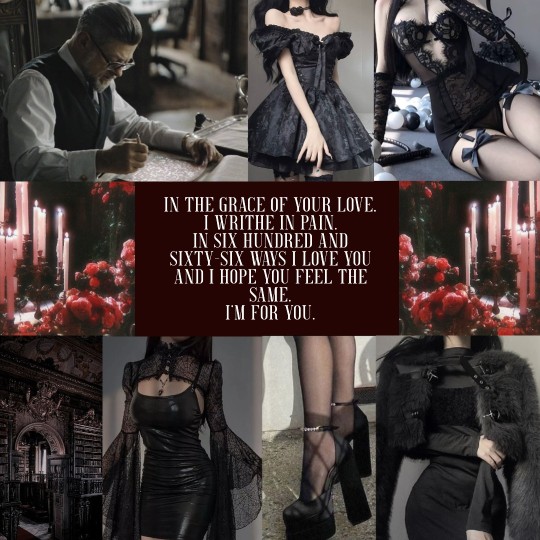
The two of you met through a chance encounter and it grew from there. At first, Alfred wasn’t sure what to think of your eclectic style, but your personality was so endearing that he was drawn to you. There was something humorous to him about your dark style with the contrast of your welcoming and almost bubbly personality.
You’re surprisingly shy and he can’t help, but say bold and sweet things that elicit a response from you like you trying to hide your smile behind your hands or turning away from him. Honestly, whatever comes out of his mouth, he’s just as surprised as you are!
“Are you always this brave when you flirt?” you ask.
“Only seems to be when I’m around you,” he replies.
Eventually he worked up the nerve to ask you on a date and then another one and another. He found himself falling more in love with you with each passing day.
Before Alfred says goodbye to you at your doorstep, he takes your hand in his. He had been nervous the whole night, but was ready to confess his love in a way that’s special to you. He was quick to learn your fondness for poetry and he’s no poet, but he wants to show you he is sincere.
“The night has a thousand eyes and the day but one,” he recites. “Yet the light of the bright world dies with the dying sun.”
The two of you are closer now, hardly any space between you as you look up into his eyes, hanging on his every word.
“The mind has a thousand eyes and the heart but one,” he continues. “Yet the light of a whole life dies-”
“When love is done,” you finish softly.
Alfred smiles. “My time with you has been some of the best moments of my life thus far,” he says. “I find myself thinking of you always and have come to realize that should our time come to an end, I would be quite miserable. Because I love you, dearly.”
Your lace gloved hand comes up to caress his cheek and he leans into your touch. “There are darknesses in life and there are lights,” you say to him. “And you are one of the lights, the light of all lights. I love you, too, Alfred.”
Your macabre interests are fascinating to him. There’s something magnetic about how you find beauty in the darkest of things. He’s not too put off by the decor in your home; the Wayne home has some rather dark decor as well so skulls and candles are not too out of the ordinary for him.
The two of you bond over books; exchanging titles is a love language between the both of you. He does blush a bit at some of the romance ones you hand him that have smuttier scenes and he’s smitten at how interested you are in his picks for you. Often the two of you just snuggle close to each other reading your own books or reading a book together.
Your music taste is your own, though. He appreciates it, really, but it’s not his thing. Artists like HIM, Apocalyptica, or Blackbriar he finds some enjoyment in and loves to dance with you to their songs. If you play more orchestral versions of songs you like, he’s very into these; brings out the melodies a lot more in his opinion.
A beautiful and haunting voice sings about a love through time. Alfred finds you swaying and singing to the music and holds out his arms to join you.
I loved you once I loved you twice I loved you in my previous lives I know your voice, I know your eyes You haunt me through my dreams at night
Your hand rests in his and his other hand is on the small of your back, holding you close, his eyes taking all of your beauty in. He gives you a spin and pulls you back to him. You didn’t know much about dancing before him and he enjoys teaching you. He loves seeing how happy it makes you that he indulges you in dancing to your music.
Oh, my love, we’ll meet again We always do in the end Our two souls destined to be You and I until eternity
Oh, the way you look at him, with such love and adoration. It melts him from the inside out. You are a romantic and you make him feel things he wasn’t sure he was capable of feeling anymore. The way you love is something out of a novel. It’s something only seen in dreams and heard of in songs like these.
We live on and on and on Death is weak and we are strong On and on and on Time is weak and we are strong
“I’m very lucky to have you, Alfred,” you say as he expertly twirls you, his arm coming over you, spinning you outward and then pulling you back to him.
“It’s quite the opposite, darling,” he says before slowly dipping you so that your head falls back and your neck is exposed to him. You let your arms slowly descend as your body drapes over his arm. His free hand comes up to caress your neck, his thumb brushing across your throat right under your chin. “I’m the lucky one,” he says moving his hand to cradle the back of your head and to guide you back up so he can kiss you.
I loved you once I loved you twice I loved you in my previous lives And when I die just keep in mind I’ll love you in another life
Despite different tastes in music for the majority, you do share a love of opera and classical music. Alfred enjoys taking you to the opera, theatre, or to the music hall for a concert. Other dates include places like the museum, both art and history. You have shown him many new things he either didn’t know or never noticed before. Your favorite date, that Alfred has also become quite fond of, is afternoon picnics in the park. The prim and proper butler was hesitant at first, but soon became more relaxed with the idea. Of course, you have a black picnic basket complete with all kinds of morsels inside. You retrieve two gothic goblets and he smiles; you are unabashedly you through and through and he loves it.
In his time knowing you before you started dating, your more revealing or accentuating wardrobe definitely had him blushing, but now that you’re his, oh, it still flusters him, but now he doesn’t feel so bad about looking. He adores your fashion sense; there’s an air of elegance to it while still reflecting your bright personality. You are shorter than he is and sometimes your shoes make you a little taller than him, but he doesn’t mind it at all. He just smiles, feeling proud of you for dressing in what makes you feel beautiful.
Alfred loves how you dote on him, always complimenting him on what a gentleman he is or how sweet and polite he is. It makes his chest swell with pride and inspires him. He loves how you help with little things like helping put on his tie; his eyes watch your black nails gently situate it properly on his neck and adjust his collar and you help him put on a coat or jacket and smooth it out.
His favorite gift from you is the cane you got him. The handle is a silver knob with a bat etched onto it. It’s so thoughtful to him and he uses it all the time now.
The first time the two of you are intimate, Alfred is taken back by what you’ve worn for the occasion; all the ribbons and lace decorating your body have him filled to the brim with desire. Despite how your choice of attire is dark in color, it is soft and demure in nature. He’s soft and gentle with you, but will take on a more dominant attitude if you ask for it. He loves you riding on top of him with your lingerie in full view. It’s too beautiful on you for him to ask you to take it off. He loves running his hands over your stocking clad thighs and watching how the fabric pulls and stretches across your body as you bounce on him.
He has you underneath him. He holds onto one of your thighs wrapped around him, using his grip to help him drive deeper into you. The soft mewls and whines you make are music to his ears. He’s thrusting slowly into you, his forehead pressed against yours and his eyes shut as he tries to focus on not just pounding you mercilessly.
“It’s so difficult to not lose control, love,” he says with a shaky breath. “You don’t know what you do to me.”
With his face held in between your hands, you utter a wish from your black painted lips for him to let go and to fuck you.
Who is he to deny you? He’d gladly do anything you ask of him.
He sits up and bends your knees as far as can towards you head and fucks you harder, deeper, and faster until you can’t form a coherent thought and you’re a mewling mess beneath him.
Alfred has a hard time actually keeping his hands off of you; he loves holding your hand, having your arm looped in his, his arm around your waist, or his hand resting on your thigh. He just wants you close to him at all times and loves showing you off as his. He’s not at all bothered by the stark contrast of you and him together.
Sometimes he does want to be handsy in other ways, especially when you tease by bending over further than necessary or brushing up against him. He’ll return the favor once the two of you are alone.
In the car, you lied about needing something from the backseat and proceeded to twist your body to reach a thing that he’s sure you made up as an excuse to put your ass on display for him. Your dress riding up and nearly exposing your backside. He quickly grabs the hem of your dress and holds it down to honor your modesty.
“Darling,” he says, “surely this can wait?”
“I’m sure I left it back here,” you call out.
As you shuffle through some things in the backseat, he’s very aware of how close his hand is to your clothed sex and occasionally you keep pushing back onto his hand making him brush up against it. And then inside of your place, you kept brushing against him, your chest against his front or your backside against the front of his pants. He knows what you’re doing, he can tell by the way you bite your black painted lip and the way you look at him from under those long lashes.
You’re so shy, particularly when it comes to letting him know what you want him to do to you and just as you love riling him up with your actions, he loves putting you on the spot, making you say out loud what you want.
He tips your chin up, thumb brushing your bottom lip. “Use your words, darling,” he says. “What is it you want?”
So when he gets you alone, he returns the favor. He gets you in your room and stops your roaming hands. He gently instructs you to sit on the bed and he kneels in front of you. He makes sure his movements are slow, his fingers barely brushing your skin as they trail down to the little buckles of your heels. He helps remove them and then lets his fingers ghost further up to where your garters hold up your stockings. He undoes these next and slowly peels them off your skin, trailing kisses along your thighs and legs. He glances up at you, watching how you squirm under his touch.
“Stand up, darling, and turn around,” he says softly.
He’s kissing your neck and shoulders as he undoes the laces of your corset. Your back arching and your head tossing back to rest on his shoulder begging for him to hurry up and touch you.
“Be patient, darling,” he says. “I want to savor you.”
Once you’re completely undressed and with him still fully clothed, he’s worshipping your body; planting slow and soft kisses everywhere while his hands caress your flesh. It’s a slow build before he’s finally inside you, but he makes it worth the wait.
Alfred is extremely protective of you while the two of you are out and about. He knows your style of dress isn’t widely accepted and sometimes the looks you get from people get to you. He’ll soothe you as best as he can to help you feel better.
“You look wonderful, darling.” “Would you like to borrow my coat?” “It’s perfectly alright if you wish to go back home, I don’t mind.”
If you go out by yourself, he’s just as protective, but does his best to not be overbearing. Sometimes you like to go out dancing to places, that he admits, just aren’t for someone like him; places like the Iceberg Lounge or Gotham City Olympus. He only asks that you send a text upon your arrival and departure from your destination. He also implores you to not hesitate to contact him if you need anything.
Sometimes he’s the one who gets self conscious. The thought that you might like someone more like you does creep into his mind at times. But then he remembers that not once have you tried to change him, you love him as he is.
“Sometimes I do wonder if perhaps someone with interests closer to yours might be more suitable for you,” he says.
“I’m interested in you, Alfred,” you say before kissing him.
You are definitely an unexpected surprise in his life, but he wouldn’t trade you for anything.
#thoughts no one asked for#Alfred Pennyworth#alfred pennyworth x reader#alfred x reader#Alfred Pennyworth imagine#alfred pennyworth headcanons
47 notes
·
View notes
Text
My hormones are all over the place today so inspired from this and this posts by draw-a-circle-thats-the-foxhole —
I had to search up some portraits for Matthew and hopefully, portraits for both Matthew & Alfred.

Le Petit Boudeur by Jean-Baptiste Greuze
That's the face of a toddler who toddled his way from Québec to Nova Scotia. Alasdair commissions a painting right away and here's Matthew sulking and confused as to why he has to sit still for hours but at least he gets a father figure as a reward.
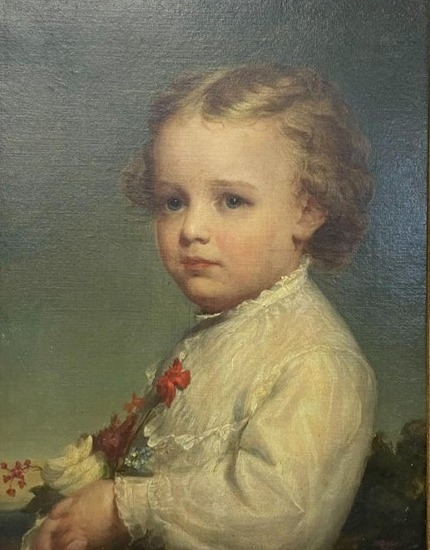
Portrait signed by Theodore Kelley
This is arguably a better portrait for Matthew. Composed and obedient. I'm not sure what those flowers are but Matthew holding flowers prophetically speaks of his identity—lilies, roses, tulips, and poppies.
The painting as a whole is more personal—something you hang in an office or library (which guardian is the question), than something you hang in the sala of your Château to show off your fur factory, settler colony, newly-acquired baby...
like this:

Portrait of Philippe Egalité (1750) by François Boucher
Obnoxious ruffles and tons of toys to compensate for the lack of quality time? Sounds like Francis Bonnefoy to me. Matthew is not staring properly as an act of mini rebellion for having to wear a stuffy, rigid gown (or perhaps something else caught his attention). It's not his fault he's not breeched yet. Also, he just wants a proper coat for winter, like this:

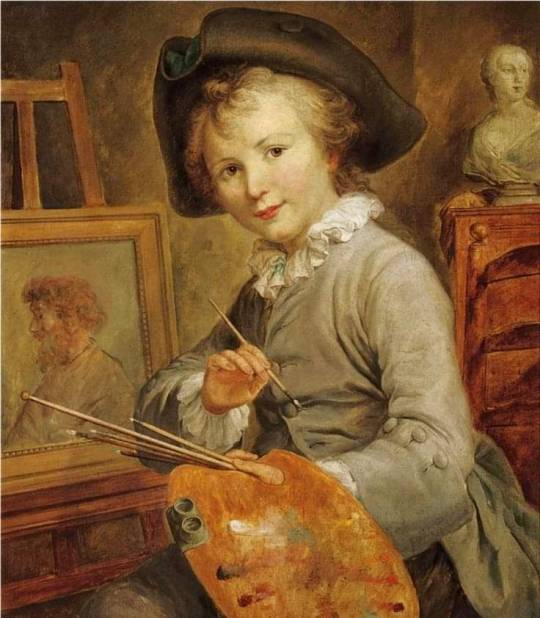
Portrait of a young boy as an artist by François Hubert Drouais
Now this is what Arthur commissions after France cedes Canada. Matthew is breeched and is thriving as a lover of the arts himself. He gets to do what he wants and be painted the way he wants. This portrait now hangs in the Kirkland museum in Arthur's manor.
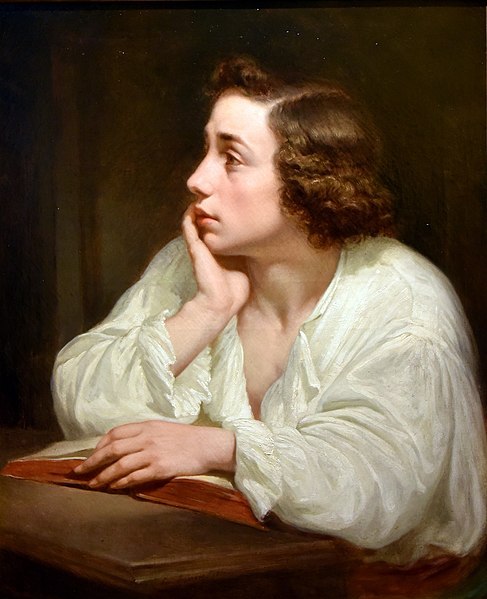
Young man distracted by Jean Raymond Hippolyte Lazerges
(just imagine that the man in the portrait is blond lol)
It's early 1860s. Alasdair commisions this painting to celebrate Matthew's Dominion status. His Petit Bourdeur is now Adulte Boudeur (idk I don't speak French). Although he's not entirely independent yet, Matthew's dishevelled and exhausted now that he's learning to navigate politics on his own. But what causes him distress the most is Alfred's Civil War.
NA BROS
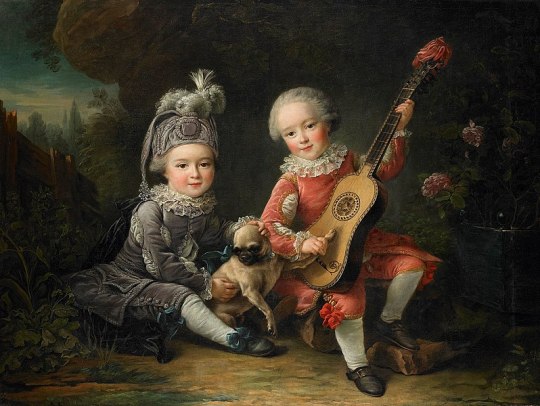
Les Portraits de MM. De Béthune Jouant avec un Chien (1727) by Francois-Hubert Drouais
Here we have Alfred inventing country music, and Matthew being French with that fancy hat. They still appear to be the same age here but Alfred grows up faster—

The Children of the Duc de Bouillon (1756) by Francois-Hubert Drouais
This is perfect. I want this commisioned on late 1760s or early 1770s before the American Revolution. Matthew on the viewer's left is talking about the pretty flowers or the moose he found while strolling. Alfred on the right just wants to read the latest publication of a philosopher-political-scientist but indulges his brother anyway.
By the 1890s, Alfred & Matthew will have more photos than paintings. That's all for now!
#hetalia#hetalia world stars#hws canada#matthew williams#hws america#alfred jones#hetalia headcanons#paintings#na bros#hetalia na bros#na bros headcanons#hetalia na bros headcanons#this is 50% research and 50% whatever#hws scotland#alasdair kirkland#hws england#arthur kirkland#hws france#francis bonnefoy
125 notes
·
View notes
Text
Saturday Challenge: And They Were Roommates
Written by: The Maribat Pit @jasonette-july-event
Prompt: And They Were Roommates
Rated: T
Tim was surprised to learn that MDC Designs had set up shop in Gotham City of all places. He was in dire need of a new suit for the Wayne Gala after the last one was sliced to ribbons. The mysterious designer had worked with Jagged Stone when she was just a teenager. Now he was on his way to her home studio across town.
Tim got out of the car and knocked on the front door of the apartment. "Just a minute!" A young woman's voice called from the other side of the door. She rushed over and opened the door to greet him, on the other side of the door was a petite young woman with dark hair and blue eyes. "Hi, you must be Tim, right?" She asked cheerfully.
"Yeah, are you MDC?" Tim asked, maybe she was their assistant or something.
To his surprise she nodded, "yes, I am. Those are my initials." she explained.
"I was hoping to commission you for a suit," Tim held up the order confirmation.
"Yes, by all means, come in" she said as she opened the door a little wider to let him in. Tim looked around the studio as he let himself in, and he found it hard to believe he was still in Gotham.
There were pink fairy lights hanging on the walls, the furniture was either pastel pink, lilac, and maybe a soft jade green on occasion. There was a small kitchen in the corner of the studio and a few separate rooms off to the side. She gestured to the small podium in the middle of the studio. She had asked Tim to wear simple, basic clothes so that she could take his measurements accurately. Tim took off his shoes and made his way over.
"So, why Gotham?" Tim asked, trying to make some conversation with the young designer taking his measurements. "Not that I'm complaining just that..." he assured her.
"It's fine," she said, "I came here because I thought," Marinette tried to choose her next words carefully. "I thought maybe I could bring some light into Gotham City, it's just so different from what I'm used to growing up." She explained, "Sometimes it's so different that it inspires me... creatively, I mean."
"Braver men have tried to do just that." Tim thought. "So uh, Miss..." Tim stumbled on the young woman's name.
"Just Marinette is fine," she said, smiling up at him. He honestly wasn't expecting her to be so... friendly, especially someone who had been living in Gotham for any length of time.
"Can you finish the suit by the end of the month?" Tim asked.
"Won’t be a problem, I'd say it’ll be done maybe two weeks from now," Marinette told him.
He heard the door open behind him but couldn't turn around and see who it was. Not unless he wanted to annoy the person taking a tape measure to him. They were probably a roommate or someone, this was clearly a studio that someone lived in. Maybe they had a roommate or there was another artist who was living here. That was until Tim heard the other person speak.
"Hey Pixie, need anything while I'm out?" a voice asked, one that was too familiar to Tim. He whipped his head around to find...
"Jason?!"
"Replacement?!"
"What's he doing here?!" The two of them asked in unison.
Marinette gave Jason a confused look, "Wait, he's 'Replacement'?"
"Dude, that's what MDC knows me as?" Tim seemed more annoyed at Jason than at Marinette. "Also what are you doing here?" He asked, while Jason looked through the fridge for something that wasn't either sweet or an expensive wheel of cheese.
"I live here." Jason deadpanned, grabbing a soda can from the fridge.
As Jason was looking through the fridge, Tim whispered to Marinette. “I’d move out if I were you, Jason’s dangerous.”
Just as Tim finishes whispering to Marinette, Jason yells “I can hear you asshole!”
Marinette frowned at Tim’s advice, “I know he’s the Red Hood. We’ve been living together for a while.”
Tim’s eyes widen, he looks back at Jason to see him walking back towards the living room. “You told her?” he cries incredulously.
Jason takes a large gulp of soda before answering, “I kinda came back injured.”
Marinette interrupted. “You still owe me a bolt of silk.”
Jason continued, ignoring Marinette’s interruption. “I kinda bled all over her stuff.” Then taking another swig of his soda.
Tim tentatively asks “So, uh, how did you two become roommates?”
“Rent in Gotham is stupid expensive, it takes two people’s income to pay for rent and utilities.” Marinette huffed.
“Yeah Timmy, not everyone can afford to live the high life at Wayne Manor” Jason said.
“Jason, if I lose customers because of you, this tape measure is going to have a very tight fit around your neck” Marinette hissed, before giving Tim an apologetic smile.
Tim groans and rubs his own forehead, “Okay fine, but what about you Jason? I doubt money was the issue.” he asked.
Jason shrugs, “Do you honestly think anyone would go looking for the Red Hood in a bright pink fashion studio?”
“Point taken” agreed Tim. Marinette resumes measuring him, moving on to measure his waist.
“Whoa Replacement, have you gained weight? No wonder you need a new suit.” joked Jason.
Marinette shot a glare at Jason, “All right that’s enough, don’t you need to be somewhere?”
Jason tosses his empty soda can into the bin all while chuckling at himself, “All right fine, need anything while I’m out?”
Marinette ponders for a second, “Chicken and wine, I’ll make Coq au vin tonight.”
Jason smirks, “Sure I’ll head to the grocery store to and ask for cock and wine” laughing like a maniac before leaving.
Tim releases a breath that he has been holding, “finally some peace and quiet.”
“Sorry, he’s usually out or reading quietly in the corner when other customers are here.” Marinette assured him.
“We’re brothers, trust me this is us being friendly.” He told her.
“Brothers?” Marinette asked, she would have thought that meant they had the same surnames.
“Adopted brothers. ” Tim clarified, Marinette nodded her head as she gathered up her sewing supplies.
“I see” Marinette replied, she looked over at Tim as he stepped down from the podium. “Don’t worry, your secret is safe with me. I’ll have your suit ready in time for the Wayne Gala.” she said as she stowed her supplies away.
BONUS
Bonus 1:
The next time Red Hood and Red Robin run into each other.
Jason: You need to lay off Alfred's baking, or you might need a new Robin suit soon.
Tim: Why? Are you gonna bleed all over this one too?
Bonus 2:
Ladybug climbs in through the window late one night, Jason dramatically flicks on a lamp.
Red Hood: Well well well, it seems you have some explaining to do young lady.
287 notes
·
View notes
Text
Interpretation of Alt’s poem Choice in Mikoshi (Part 2): Old Man Yells at Cloud
Cyberpunk spoilers ahead:
Part 2 let’s unpack Johnny’s version of the Mikoshi poem! If you haven’t already read my post on V’s poem, please read that one first here!
To recap: Alt has two different poems she reads as you enter the Mikoshi depending on who is in control. V is given an excerpt from The Love Song of J. Alfred Prufrock by T.S. Eliot, while Johnny is given Sailing to Byzantium, by Yeats. At first I thought the connection obvious, but the more I stare at this passage the more hidden connections I see:
“Once out of nature I shall never take
My bodily form from any natural thing,
But such a form as Grecian goldsmiths make
Of hammered gold and gold enamelling
To keep a drowsy Emperor awake;
Or set upon a golden bough to sing
To lords and ladies of Byzantium
Of what is past, or passing, or to come.”
The overarching theme of the poem from which this section originates is about dying in order to transcend beyond the limitations of the earthy world. The opening line of this poem is probably its most famous: “That is no country for old men.” The speaker, presumably an older man, is watching as the youth become so caught up in their own lives that they fail to question their own mortality.
The speaker has traveled to the country of Byzantium (Now Istanbul not Constantinople) now to seek a form of immortality; not of the body, but of the soul. The speaker’s body is aging and dying, and he hopes to find a way for his soul to continue to “sing.” He petitions the “saints” (which is actually reference to golden tiles on a mosaic) to destroy his flesh, “fastened to a dying animal”, and teach his spirit to “sing” so that it may live on in the form of art.
This is where Alt’s passage leads us: what the narrator plans to do once he has left his body behind. He will not be reborn as anything “natural” (flesh and blood), and instead wishes to become “a form as Grecian goldsmiths make/Of hammered gold and gold enamelling” (referencing a piece of golden art that would have been made to hang above an emperors bed). Or, he will become a golden bird resting on golden branches, sharing his knowledge with the world of the mortals through song; now unshackled by “what is past, or passing, or to come.”
The poem is arguing that the truest form of immortality comes from art; the body may die, but the artist lives on. Johnny originally seeks to change the world with his art, his music, trying to “shake the world awake.” He is unconcerned with success and money, and more concerned with his art waking people up to the realities around them. The people of NC, in this circumstance, are the youth of Byzantium; so caught up in their own lives, they don’t see the bigger picture, or see the death and injustice that happens around them (either this, or they are too concerned with survival to have time to contemplate such issues). Johnny is the golden bird hoping to sing his knowledge at a new generation, while also hanging above the heads of the corporate elite “To keep a drowsy Emperor awake.” This is his method of ensuring he Never Fades Away.
We can read this two ways: Is Alt trying to influence Johnny’s choice on whether to take V’s body? Or is she simply reflecting his own inner narrative? The poem stands in stark contrast to V’s poem — which asserts that one’s individual life does not matter, and that one will never change the world in any significant way. Johnny’s poem tells us the opposite; asserting that his art, and by extension his soul, did matter, and did have an impact, almost telling him that it’s okay to give up his physical form as his art will keep his soul alive. This puts Johnny and V in stark contract to each other: V represents the youth of Byzantium, fleeting and superficial, bound to the rules of mortality and the cycle of life and death (which tracks considering V will die soon after Mikoshi anyway). Johnny, on the other hand, represents the immortal self (naturally, since the engram/blackwall basically grants immortality depending on how one interprets what it means for the idea of the afterlife and the soul), and how your art and impact on the world will live on long after one’s physical body. Yeats, like Johnny, is obsessed with the idea of transforming the world in nearly all of his poetry, while Eliot questions if it’s worth even trying to change the world, or if all efforts to do so are futile.
Interestingly enough, Yeats is referenced through the game in other ways. The names of his poems appear as side quests such as “A Prayer for my Son.” Sailing to Byzantium also first appeared in a poetry collection titled “The Tower,” which includes a poem of the same name. Not only is The Tower an important tarot card in the overall theme of the game (representing radical change and transformation), but Johnny specifically has a tattoo of The Tower (tarot card) on his arm. The Tower Tarot card can be found, simply enough, at the ruins of Arasaka Tower. Is this meant to represent Johnny’s “transformation,” from his physical form to an immortal one? Or something much less literal?
#cyberpunk 2077#cyberpunk2077#cyberpunk#cyberpunk spoilers#cp2077#cp2077 spoilers#cp77#cp project red#cp 2077#johnny silverhand#Alt Cunningham#V#Cyberpunk V#V cyberpunk#The Sun Ending#My posts#cyberpunk meta#cyberpunk 2077 meta
127 notes
·
View notes
Text
Spoilers Below
INTRODUCTION
In Julia Season One Episode Four, directed by Erica Dunton, Julia Child (Sarah Lancashire) struggles to figure out how to deal with fame as a woman in the early 1960s. At the same time, associate producer Alice Naman (Brittany Bradford) attempts to broadcast The French Chef in markets outside of Boston. The Boston Globe publishes a piece praising Julia’s The French Chef but ignoring all the other WGBH public television shows, including I’ve Been Reading. Host P. Albert Duhamel’s (Jefferson Mays) feathers are ruffled because a silly cooking show hosted by a woman receives all the praise. Julia decides to speak as an honored guest at her Smith College reunion to avoid the naysayers.
Julia feels pleasure and discomfort with all the praise she hears at Smith College because of her newfound fame. The chef yearns for a simpler time before all these fans wanted a piece of her. As the now sole producer of I’ve Been Reading, Alice struggles to acquire famous authors for the show. The producer wishes to be back working on The French Chef leading to her cold call public television channels all over the United States. Alice wants them to air The French Chef. She finally convinces San Francisco to pick up the cooking show on their public television channel.
Alfred A. Knopf, Inc book editor Judith Jones (Fiona Glascott) continues to feel split in two. Her boss Blanche Knopf (Judith Light), wants her to drop Julia’s second cooking book. Julia asks Judith to find Alice, a famous author, to interview for I’ve Been Reading to placate Alfred’s ego. Judith impresses John Updike with her notes so much that he agrees to an interview on Alfred’s show. John and Alfred click on I’ve Been Reading while discussing the author’s novel Rabbit, Run.
INNOVATIVE CAMERA TECHINQUES
Daniel Goldfarb and the other writers on Julia Season One effectively reveal the artistic innovation that existed on the sets of early cooking shows like The French Chef. For example, Avis DeVoto (Bebe Neuwirth) stands in for her best friend Julia while director Russ Morash (Fran Kranz) and the camera operators figure out how to film the whisking of eggs. The crewmembers built this special camera rig to capture the whisking, and Avis stands on an apple crate to mimic her best friend’s height. An old television is plugged into the camera to allow Russ to see what is being filmed in real-time. The cameraman operates the custom camera rig as Avis whisks, attempting to film the eggs in the large bowl.
Russ orders Avis around while a fast-moving samba song highlights the fast pace of the television set. The camera operator can’t figure out how to film inside the bowl because Avis’ head is always in the way, no matter how high or low she holds up the bowl. Finally, Avis has enough with cameras in her face and hot stage lights causing her to sweat. She asks for a time-out. The cinematographer explains that they can’t film through somebody’s head. Russ feels discouraged until he sees Avis looking into a pocket mirror as she fixes her makeup. The mirror inspires him to experiment.
The next day, Russ whispers to Avis that he wants to show Julia the “mirror shot.” Avis muses the term sounds “so Hollywood.” After the crew sets up, Russ tells Julia that he has something to show her. He orders Avis to “hit it.”
The three cameras point to the ceiling while Avis whisks the eggs. Julia looks up, spotting a giant mirror reflecting the inside of the bowl where the eggs are being whisked. She grins in awe of the innovation. She jokes that the mirror trick seems like something that Russ came up with based on the honeymoon suite in Niagara Falls. Everybody bursts into laughter. Julia congratulates both Avis and Russ on their invention. These two “Petit Fours” sequences demonstrate how films sets are places of experimentation, especially when figuring out how to shoot something new like a cooking show.
AMBIGUITY AROUND QUEERNESS
“Petit Fours” captures a moment that leaves Julia’s view of queerness ambiguous. Homophobia was quite common in the early 1960s since one could be locked in a mental hospital for being lesbian or gay. As a result, everybody stayed in the closet. This is the historical backdrop for the scene where Julia’s old college basketball friend Iris Wallace (Robin Weigert) comes out to her.
The pair stumble through campus in the dark, totally exhausted by all the hills they walked up. Julia jokes that she could fit the equally tall Iris in her pocket. The two friends share a laugh. Iris talks about how her heart started to palpitate when she saw Julia on The French Chef. The comment makes Julia uncomfortable, perhaps because she remembers a hot summer night that Iris mentions later in the scene. She quickly changes the topic.
Iris tells Julia about her romantic relationship with a woman named Carol, essentially coming out as a lesbian. The camera focuses on Iris walking, so the audience can’t see how the chef feels about her friend’s queerness. She tells Julia that she doesn’t think she would have come to realize her sexuality if not for their friendship. Julia stops walking. She looks genuinely puzzled but not angry or upset. Julia asks Iris about what her comment references. Iris describes their senior year spring break when she and Julia slept under the blankets together naked after skinny dipping. There is some implication that they slept together or at least fooled around.
Julia turns on a poker face, not revealing her feelings at all. The chef says, “Memory can be so fickle,” implying that she doesn’t remember them sleeping together. The two friends stand still for a couple of minutes, not talking to one another. Finally, Iris and Julia continue to walk, wearing confused expressions on their faces.
Julia doesn’t say anything homophobic or dismissive of Iris’ relationship with Carol in the conversation. At the same time, she refuses to recognize that she experimented with Iris. Since Julia only expresses confusion, it’s unclear if she doesn’t remember sleeping with Iris or refuses to admit she may not be entirely heterosexual. When Julia returns to her hotel room, she calls her husband, Paul Cushing Child (David Hyde Pierce), to complain about being famous, implying that she blames her television show for that uncomfortable encounter. The scene makes it unclear if Julia’s viewpoints on queerness align with the times or are at least a little bit progressive. She doesn’t out Iris to anybody else, but that doesn’t clarify her view of lesbians. Either view would be understandable, but the sequence leaves one confused, as Julia seems to be. Though based on the site SFist, the real Julia Child was homophobic. In 1992, she blocked “gay San Franciscan … Daniel Coulter” from the executive director position at an organization she founded called the American Institute of Wine and Food. Throughout Julia’s documented life, she referred to gay men as “fags.” Perhaps the writers made Julia’s thoughts on queerness ambiguous to make her more palatable to modern television viewers without pretending she was an outright ally.
LAST THOUGHTS
“Petit Fours” is a story about accomplished intelligent women figuring out how to function in inherently sexist workplaces that lead them to appease men who feel threatened by their success. Let us know your thoughts on Julia Season One Episode Four in the comments below.
#tv recap#tv blogger#julia 2022#julia season 1#julia hbo#hbo max#julia child#sarah lancashire#paul cushing child#david hyde pierce#judith jones#alice naman#russ morash
2 notes
·
View notes
Text
Teen Titans Review: Annual #2 Part 2
August/26/2020
Part 1
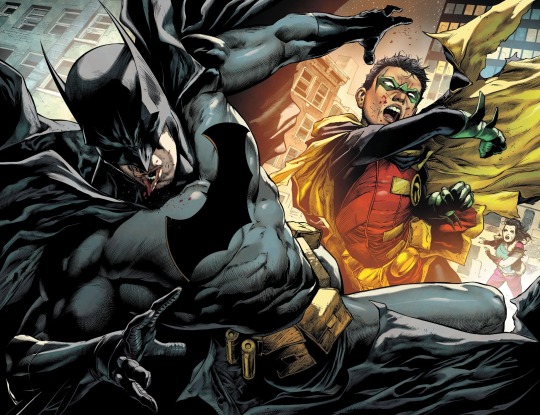
This again pushes the narrative of Damian as the angry aggressor with no self-control nor a ability to be conscious of how his own actions hurt other people.
I am not denying that Damian hasn’t been extreme before or has a temper but if written correctly he would have enough awareness to feel guilt for what he did to Emiko and not act so aggressively towards Bruce.

This is another section of the issue that I feel conflicted about how to feel about this for several reasons:
-> The things Damian says in these panels aren’t all false :
I wouldn’t be sincere in this review if I didn’t acknowledge the truth to Damian’s comparison. In the last two years real time the Wayne Manor has become a sort of coffin and tomb. A manor that only carries the echoes of those who used to live there.
After a while, I could imagine it would be distressing to visit the Manor because it would remind them of the people who weren’t there anymore.
-> I fear Anti’s will look at these panels and try to justify Damian as a bad person:
I asked my older brother (Who doesn’t know much about comics besides the bit I tell him) to read the interactions in this issue and give me his opinion on them.
“To me it feels like the writer is trying to show Damian is conflicted and not in the right headspace therefore showing him erupting into a fight with Bruce violently but...I can definitely see how someone who doesn’t like Damian could turn this narrative against him.”
And I agree with him. As much as dislike these direction in writing for Damian, I do see what Thompson was trying to do here (and since the beginning of the run). It hasn’t been executed well, but he has been trying to get the reader to sympathize with Damian (more than Glass that is).
And I believe it is trying to show that Damian is at his wits end, not thinking right-well-I mean-Damian hasn’t been thinking right in TT since 2018, but I guess he’s really not in the right headspace.
But I have the same fear that my brother mentioned, if you look at these same panels through the same lens of someone who doesn’t particularly like Damian you look at this and think is horrible. I can already imagine what they’d say:
“Look at how badly Damian treats his father!”
Although your supposed to look at this as Damian having a outburst after keeping in it for so long and not being emotionally-neglected by his father.
“Alfred’s death was hard for Bruce too, Damian needs to stop acting like he is the only one who is hurt.”
Even though Bruce is an adult and Damian is a teen(a severely-damaged one at that) and you know...BRUCE DIDN’T COMFORT DAMIAN AFTER ALFRED DIED...
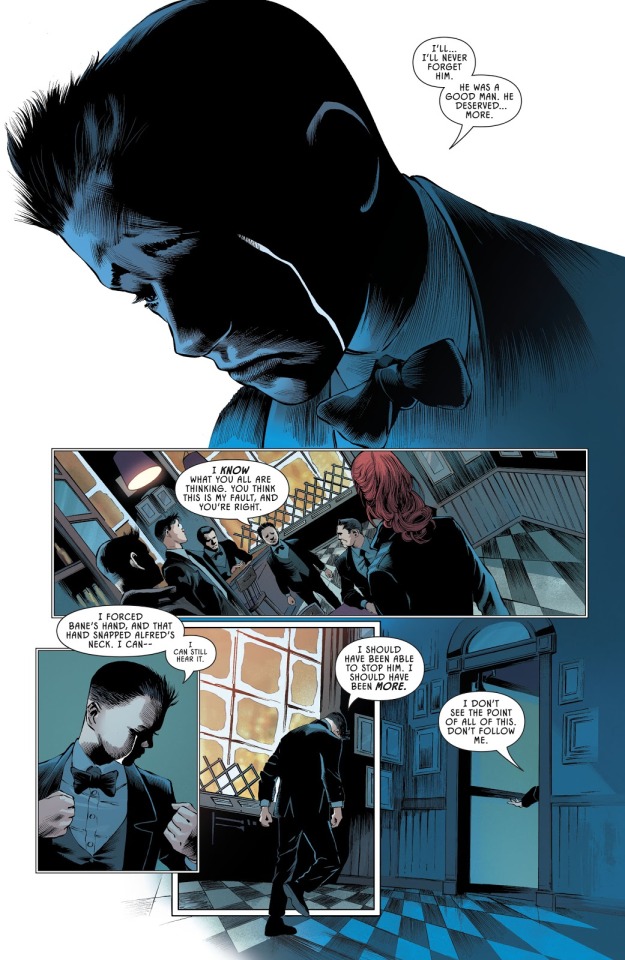
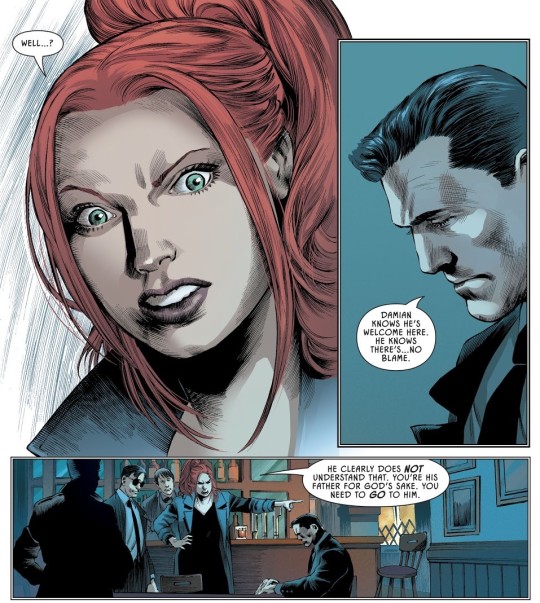
And this further expressed in Detective Comics where Damian causally mentions that he is surprised that his father contacted him.

Like...um...Damian is a 13-year-old boy...are you really telling me Bruce hasn’t contacted his own underaged son especially after Alfred died?
“Dick just got shot and lost his memories. He didn’t die. Why is he acting like he died?”
I talk more about Damian’s and Dick’s relationship here.
But to put it simply, Dick is one of the only people Damian trusts to be vulnerable with. Damian is extremely independent yet depends on him the most. This is expressed many times in the beginning of rebirth (specifically in the Nightwing and Batman comics). Losing that connection is extremely damaging to Damian.

Moving on, I actually appreciated this scene with Crush. I happy that she kept the group from intervening between Bruce and Damian.
With the track record of how “great” the Teen Titans are at handling situations them getting in the middle of the fight would’ve made this worse.
Plus I liked that she recognized that this was something personal. So far, I’ve felt like the majority of the Teen Titans have antagonized Damian and it felt refreshing to see Crush realize that Damian’s actions are more personal than they thought.
But at the same time, I don’t know how to take this. I feel like they also wrote this in order prop her up to be the new leader in the next issues so at the same time it feels a little insincere.
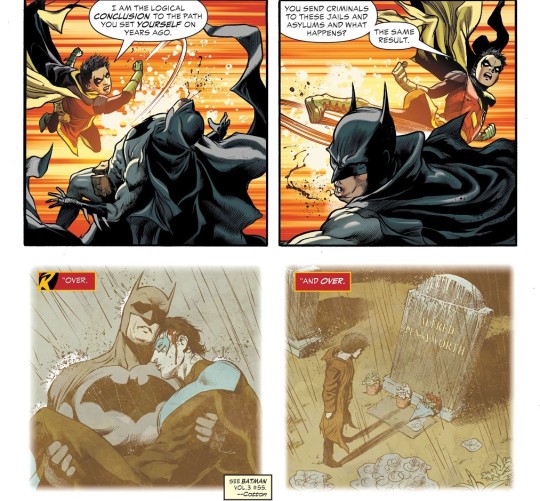
I already said this in part 1 of the review but I am grateful for the decency DC or Thompson had to give us some personal reasonings for his actions, but again, it doesn’t work as a good trigger nor does it hold the same hype it would’ve if written earlier when it happened, not months after it happened.
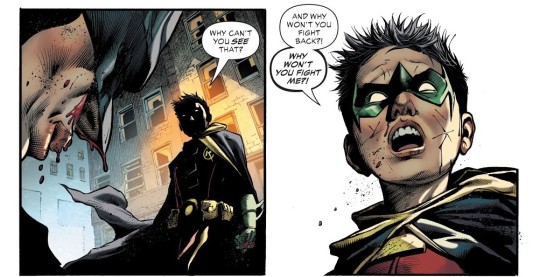
One of the only things about these panels that I have to say is that I saw some people theorizing on twitter that perhaps Damian was expecting to be punished by his father because of how his other brothers have been treated by Bruce. But I really don’t know myself how to interpret it.
Why is Damian questioning why Bruce isn’t fighting back?
-> Was he expecting Bruce to punish him?
-> Was Damian expecting his father to challenge his new beliefs?
Because Bruce doesn’t really challenge Damian’s beliefs at the end, if anything, it seems like Bruce gives up trying to reason with Damian.
Which is sad if you look back to this panel in Batman and Robin 2011:

Jumping back on track, and then we have this panel:

Which is yet again another panel that I feel conflicted about.
I guess it’s nice Bruce finally told his son that he loves him, but also it’s a little to late now. Bruce should’ve expressed compassion to Damian when he had the chance, and he had a lot chances to do this:
-> On his 13th birthday.
-> By being more involved in his life.
-> When Dick got shot to remind Damian he had someone there for him despite Dick not being there.
-> When Alfred died in front of him. That was most likely traumatizing for him, would’ve been nice to have someone there to comfort him.
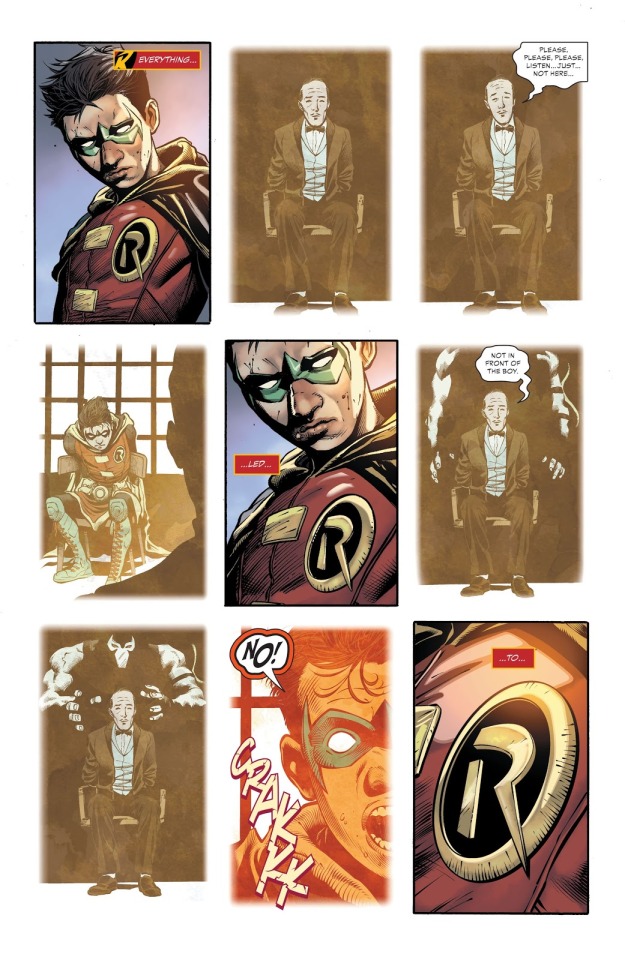
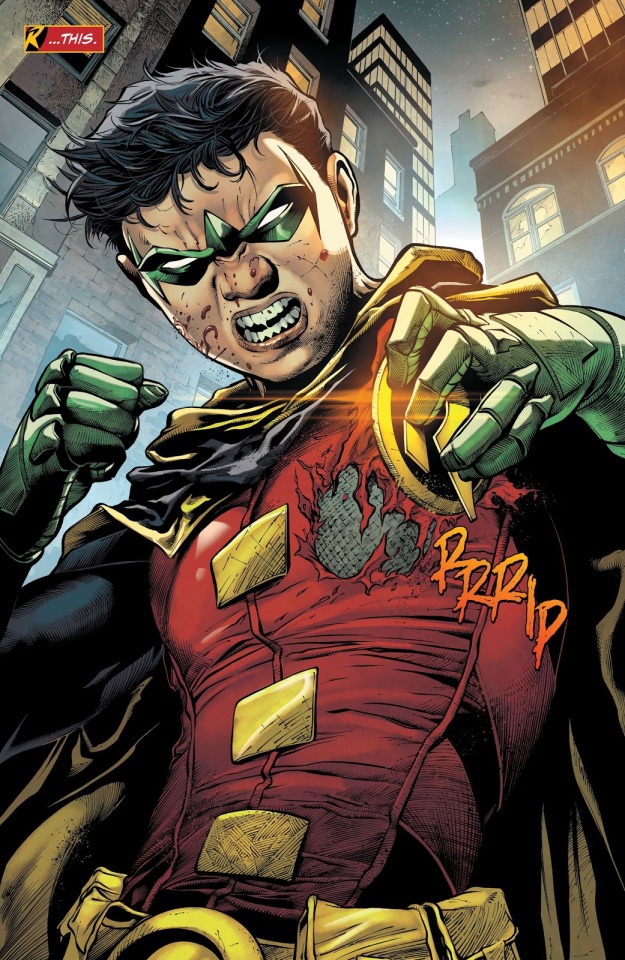
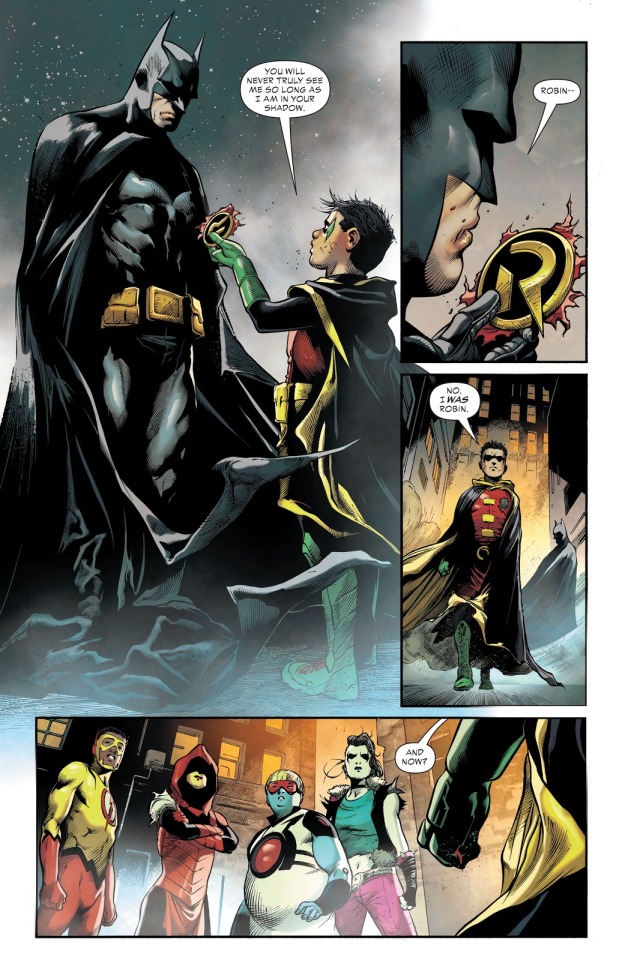

I feel like I keep repeating myself, but again, this four pages are difficult to interpret.
“Everything...lead...to...THIS”
-> I’m taking this as Damian concluding that being Robin (and everything that encompasses including the no killing rule) lead to him losing people he loved and eventually not being Robin.
“You will never truly see me so long as I am in your shadow.”
-> Damian thinking that Bruce won’t take him seriously if he is Robin?
-> Thinking that Bruce won’t ever truly see who he really is if he is Robin?
“Now I am finally free.”
-> Damian implicating that being Robin was a burden and/or restricted him from doing what he thinks is “right?”
As a Damian stan the last four pages were the most painful to read. Seeing Damian leave the Robin title frustrates me soo much.
Conclusions and Predictions:
-> This issue was not as bad as I thought (but still bad):
For one, I am glad Bruce didn’t beat up Damian.
I am glad they had the decency to give Damian more personal reasons to go down this path even if it was late.
-> (I’m gonna start talking about the art more in my reviews)
Pansica is a very talented artist BUT I personally don’t think he was the best choice to draw a comic with teens. The adults in this issue were drawn great but I feel like drawing teens is not his strong point.
There was points in this comics were Damian looked unpleasant and I think it was because Pansica tends to be very detailed although a lot detail does a disservice to drawing teens. As a artist myself, I lay off the details when drawing children since it often ages them more if you put more detail.
Maiolo’s colors are good. I don’t know if it was a conscious decision or not but the dullness of the color really emphasizes the darker vibe of this issue.
-> Thompson didn’t fail me this issue, he still manage to make me hate Roundhouse more than last issue :)
He also really pushed that unnecessary Emiko X Wallace ship in the middle of this issue. I think the bothers me about this relationship is that they gotten closer because of Damian killing. I really don’t vibe with that.
-> Bruce just suddenly offering a hug after giving Damian death stares at the beginning just confuses me.
-> Teen Titan’s didn’t ever take Deathstroke go and basically let him go unless he’ll be appearing next issue.
-> So far Damian sucks as being a villian/anti-hero, he failed both at killing KGBeast and Deathstroke.
-> Hate that once again, most of the blame was thrown at Damian.
->To Damian, being Robin was the best thing to happen to him.

It allowed him to see the mistakes in his past(that he was made to do) and work towards becoming a better person...in other words, it granted him an opportunity to redeem himself.
Not only that, but it granted him the opportunity to honor the people who helped him become a better person (Dick and Bruce).
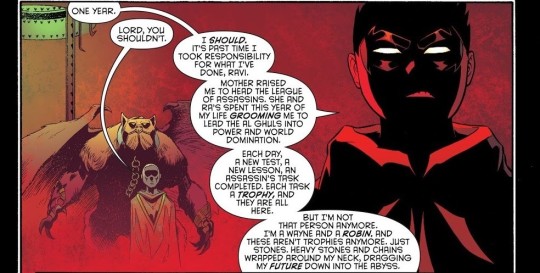
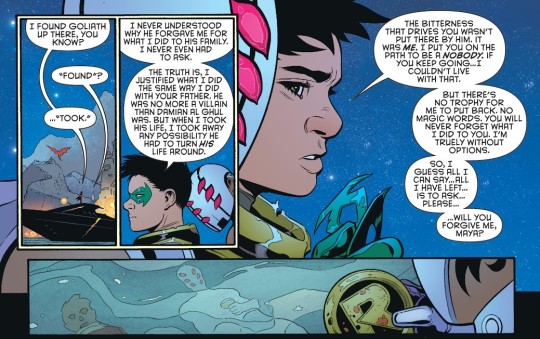
And even Damian felt like he needed to “prove” that he could be Robin because I think even Damian felt like he didn’t deserve it or wasn’t good enough.
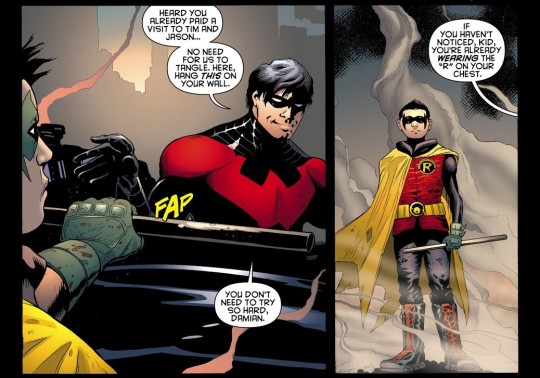
What this comic has done with him is atrocious and will always be no matter the outcome.
I have a petition related to Damian here. I would appreciate it if you shared and signed.
#Damian Wayne#Robin#Respect Robin#Save Damian Wayne#Batman#Bruce Wayne#anti bruce wayne#Deathstroke#Slade Wilson#Teen Titans#wallace west ii#Kid Flash#Emiko queen#red arrow#nightwing#dick grayson#crush#roundhouse#maya ducard#Alfred Pennyworth#dc comics#comics#yicruz48
185 notes
·
View notes
Text
Egoistic: Bruce Wayne x Reader
I am in love with MAMAMOO and I like how this song inspired by this. I am just a random writer writing random content depending on what inspires me or what comes to my mind but I do hope to some of you who would read this one-shot would like this. So I have no particular bias in mamamoo but I just thought moonbyul would be perfect as Reader-chan. now Enjoy!!
part II
Egoistic: Bruce Wayne x Reader

I foolishly adjusted to you and it’s torturing me
Making me lonely till the end
- Egoistic: Mamamoo
Bruce Wayne, the notorious philanthropist, and playboy in the city of Gotham. The man that captured hearts of many and had bedded some of a few. A man of power and looks as he is not only a wise man but a total lady killer as well.
Then came he alters ego, none other than the Dark Knight himself, Batman. A hero he calls himself yet he does the most despicable things to every villain he encounters. He embosses cruelty and violence that he knows that will strike fear to every dirt lingering in his city.
Only a few people know that these only masked. Specifically two people. Alfred Pennyworth: The Wayne Family Butler and Y/n L/n: The Childhood Best friend.
There was also Selina Kyle, but she cannot really penetrate his wall. Yet.
What she and Bruce had been considerably more than just a fling. They had their nights together as they let themselves lost in their desires. And the man seems to not mind at all as he is starting to consider the woman as the only person who understands him. The man was truly and Egoist.
Too encased with the idea that he was a man who lost everything. A man who wants to rid the society of its parasites and pest. A hero equipped with the most convenient ways to help people of Gotham. And he had a perfect companion in his goals, Cat woman. Although a criminal but Selina did things for the good, well most of the time.
Y/n was nothing compared to Selina. The moment the woman entered her best friend’s life, it was she never existed in Bruce’s life. The way she would break with every conversation they would have about the said vixen vigilante made her blood boil and heartbreak all the time. But what can she do?
“What can I do?” Y/n mumbled to herself as she stood before Wayne mansion.
The skies thundered, heavy droplets of rain drizzled endlessly that night. Flashes of lightning gave glimpses of her peripherals from the metal fences, the shrubbery. She cast her eyes upward and from her spot, she had a perfect view of his bedroom window. The light was on in his room. She saw a silhouette of two figures inside before the light disappeared and so did the breath from her lips.
It was one of those nights where Selina would come home with Bruce from his patrol. Another night of sheer bliss from both of them. And another night of torment for Y/n.
Eyes never leaving the same window, Y/n remained in her spot as the rain continue to drench her from head to toe. Droplets of water missing with the salty ones that slid along her cheeks from her glassy eyes. The pattering of rain was being accompanied by small sounds of light sobs.
And from that night, she vowed. That this will be the last time Bruce Wayne will make her cry.
^^^^^^
It’s been a couple of years now. Bruce has seen his best friend who left him with nothing but a letter of confession. At first, he was oblivious of his best friend’s disappearance until one day he asked his trusty butler to why the sudden absence of woman. Alfred replied with silence before handing his master an envelope.
There is a saying where in order for someone to realize their feelings for that person is for them to lose that said person. And that he just did.
The closest person he considers as a family had gone off somewhere after verbatim-ly confessing in a letter that she can no longer resist that pain she has to feels upon seeing him in bed with another. And it was made more difficult years later when he realizes that there were still differences between him and Selina. She can handle publicity, unlike Y/n who handles everything for Bruce.
It was hard to function for him for a while before he met Dick.
Bruce is now as at a party, Mayor Garcia had somewhat called up all people from around to for the ball. Of course him being a big shot, it would almost seem impossible for him to not be invited. With that opportunity, he brought his son’s along with him yet they all went to separate directions later after a few minutes of entering the venue.
The party had an unknown purpose as the said leader of the city stated that it was just another celebration.
Damian Wayne was keeping himself occupied by marveling all the pieces that seem to be sponsored at the party.
“An Obra Maestra in my opinion. Maybe I should get one for my room or maybe two?” the young Wayne boy stared at work with utmost admiration and respect. He was entranced by each stroke on every canvass, hook, line, and sinker. The colors working along with the movements and directions. There was something aggressive with each one that Damian cannot explain.
Soon he came through an empty hall, littered with more canvasses. Each art contained different messages now but he could tell the artist was still the same person.
Although he was rather drowned out with admiring one particular piece where it was a portrait of a Sabertooth sitting in a calm meadow with a Robin fluttered upon its snout. Both animals didn’t show any discomfort but rather a pinch of sparks fly. “You like art?”
Damian didn’t turn as he was still engrossed with the painting mumbled small ‘Yeah’.
Y/n smiled, her eyes from the boy turned to the painting hung on the wall. “What do you think this piece talks about?” The boy still didn’t turn his gaze away from the painting but manage to muster a reply.
“It tells about a Robin that had fallen with a Predator.” Y/n hummed, “How do you know it’s a love story kid?” Damian’s green eyes sparkled with curiosity as he analyzed the said piece. “I don’t but I like to think that the Robin had fallen for the predator due to admiration on how well she hunts her prey.” Y/n’s head flicked to the left, lips curling to a smile.
“A debatable answer.” She chuckled.
“I’ll take this one to my room. Do you know anyone here I could talk to about buying this piece? I am somewhat very fond of it.” Damian spun her head to the direction of his company. Y/n only smiled at him.
“I guess I do.”
“Good, will you take me to him?”
“SHE is right in front of you darling.”
^^^^^^^
“Fancy seeing you here Clark?”
The disguised man of steel took Bruce’s extended hand. “Well, it’s just that my agency heard of a big occasion here and nothing really special but they still sent me anyway just in case.” Bruce eyed the small notepad and pen on his one hand. “Still working on a weekend?”
Clark on raised his shoulder to a shrug before a short pause.
“You alone?” The blue-eyed man shook his head. “I’m with the boys, they’re out there somewhere. Maybe drinking their asses out or something.” Clark nodded in reply.
“Hello, Good Evening everyone.”
Clark and Bruce turns to the podium where the leader of Gotham city now stood.
“I know some of you are still questioning why I invited you all here. In a very normal party. I think many of you notice the setting.”
“Bruce.”
The said the male’s attention was taken by his eldest who was accompanied by his other two siblings. “Dick, Tim, Jason. I’m surprised you’ve found me. Where’s Damian?” the three looked at each other, brows furrowed.
“The Painting exhibited on the walls are sponsored by a surprise guess tonight. I know some of you have been eyeing some pieces of our liking but sadly they are not yet for release.”
“We thought he was with you.” A surge of worry climbed through Bruce’s bile a bit.
“Don’t worry too much, Bruce. I’m sure he’s just around here somewhere.”
“Now I would like to present to all of you the mind of all the masterpieces spread across all of you. I must say I was rather excited when she had finally accepted our invitation. And our guest was generous enough to have all her works be the highlight of this event since we’ve been aiming to have an Artistic type of setting.”
All attention finally was to the speaker on the front Bruce and his sons were still quite occupied to where the youngest was. “Clark would you mind keeping an eye out to where my son is.” Of course, the man agreed.
Still occupied, Bruce kept turning his head every five minutes in hopes of spotting the jaded eyed boy.
“Ladies and Gentlemen, I present to you. The Artiste Visionnaire of France. The Famous 21st Century Art Critique Maîtresse. Painter and Ex-Marine Sergeant;
Madamoiselle Y/n M/n L/n.”
At the moment, everything had stopped for Bruce. The familiarity of the name that should have been long forgotten in the back of his mind rang like he had heard the name like yesterday.
“Wow, who would’ve thought that I could hit a jackpot tonight? Y/n is a big name in the industry. Have you ever seen such and influencing woman- Bruce?” With air caught in-between spaces of his throat, he can’t form any type of reply.
His eyes watched from the edge of the stage, a good ten feet from the podium where the Mayor stood. He awaited the familiar petite frame of a woman that he remembers that likes to dress into big skirts and conservative tops. The same woman that he had come to realize to be his only one.
And with no denial, a woman did emerge from the side. But not in the said attire he had thought as he almost didn’t recognize that it was a woman. The person emerges wearing a very prestigious and recent collection Dolce and Gabbana. It was a suit, the type where big businessmen would wear. It was tailored from a very expensive satin called satin-jacquard. The satin suit glowed in its canary yellow hue that lights from every chandelier allowed it glimmer a lot more. Like the person walking in them was wearing gold. And along the satin suit was loitering designs of floral in dominating shades of reds and greens.
“Y/n…” It was her.
Yet he felt different from her. Like he was somewhat culture shocked. The woman who never failed to show femininity to the crowd is now walking before him in the most expensive suit somewhat only she could pull off. Eyes held no type of emotion but stoniness.
Bruce watch each of her strides towards the podium. Poise. Just poise.
He described that moment as if she was the most feminine of the feminine yet masculine of the most masculine.
As she arrived by the podium, facing the seemingly endless crowd of elites. He didn’t miss the moment her eyes found his.

#bruce wayne#bruce wayne x you#bruce wayne x reader#batman x reader#the dark knight#superman#clark kent#son of batman#Damian Robin damianwaynexreader damianwaynexoc wayne batman batboys#bat#batman
220 notes
·
View notes
Text
Birthdays 8.13
Beer Birthdays
Arnulf of Metz (582 C.E.)
William Blackall Simonds (1761)
Anders Jöns Ångström (1814)
Charles Wells (1842)
Lilly Anheuser (1844)
William J. Lemp Jr. (1867)
Mark Carpenter (1943)
Dave Keene (1955)
Tom Nickel (1972)
Five Favorite Birthdays
Ben Hogan; golfer (1912)
Annie Oakley; sharpshooter (1860)
Philippe Petit; high-wire artist (1949)
George Shearing; jazz pianist (1919)
Felix Wankel; German engineer (1902)
Famous Birthdays
Felix Adler; ethics philosopher (1851)
Giovanni Agnelli, Italian businessman, founded Fiat (1866)
Anders Jöns Ångström; Swedish physicist (1814)
Benny Bailey; trumpet player (1925)
John Logie Baird; Scottish engineer, television inventor (1888)
Grace Bates; mathematician (1914)
Kathleen Battle; opera singer (1948)
Danny Bonaduce; actor (1959)
Neville Brand; actor (1920)
Jane Carr; English actress (1950)
Dave Carter; singer-songwriter and guitarist (1952)
Fidel Castro; Cuban dictator (1927)
William Caxton; English linguist, printer (1422)
Bobby Clarke; Philadelphia Flyers C (1949)
Will Clarke; author (1970)
Tom Cohen; philosopher (1953)
Dave "Baby" Cortez; R&B pianist, organist, and composer (1938)
Alex de Renzy; film director (1935)
Joycelyn Elders; admiral and physician (1933)
Dan Fogelberg; pop singer (1951)
Julius Freed; inventor, "Orange Julius" (1887)
James Gillray; English caricaturist (1756)
Paul Greengrass; English film director (1955)
George Grove; English musicologist and historian (1820)
Pat Harrington Jr.; actor (1929)
Alfred Hitchcock; film director (1899)
Don Ho; singer (1930)
John Ireland; English composer (1879)
Salomon Jadassohn; German composer (1831)
Bert Lahr; actor (1895)
George Luks; painter (1867)
Salvador Luria; Italian-American microbiologist (1912)
Bernard Manning; English comedian (1930)
Debi Mazar; actor (1964)
Jimmy McCracklin; blues/R&B singer-songwriter (1921)
Vladimir Odoyevsky; Russian philosopher (1803)
Tom Perrotta; novelist (1961)
Valerie Plame; CIA agent and author (1963)
Kevin Plank; businessman, founded Under Armour (1972)
Thomas Pogge; German philosopher (1953)
Llewelyn Powys; British writer (1884)
Gene Raymond; actor (1908)
Herb Ritts; photographer (1952)
Buddy Rogers; actor and musician (1904)
Frederick Sanger; English biochemist (1918)
John Slattery; actor (1962)
Goldwin Smith; English-Canadian historian (1823)
Lucy Stone; feminist, suffragist (1818)
Margaret Tafoya; Native American Pueblo potter (1904)
Regis Toomey; film director, actor (1898)
Richard Willstätter; German-Swiss chemist (1872)
1 note
·
View note
Text
Yearbook
On the day Lila returned to school during Chameleon, Alya was kind enough to show her the yearbook, and what everyone thinks of each other.
Marinette: Class princess, which is a play on president. Turns out Adrien was the one who called her that, saying she was the prettiest girl in class. He had to placate Chloe by saying she was the queen. When the yearbook came out, Adrien went to Marinette first to get his princess’ signature. This is what makes Lila target Marinette for the seat arrangement.

Adrien: Prince Sunshine
Chloe: Queen Bee (she isn’t the queen of the student body. They hate her, but they have to be nice) Alix has scrawled over with the words Drama Queen
Lila: globe trotter (See, we haven’t forgotten you, Lila.)
Rose: PINK (As in the actual singer)
Juleka: Mirror, Mirror, on the wall, who is the fairest of them all? This was a photo they had of Juleka with her hair out of her face.
Ivan: Daredevil
Alix: the jock (Kim loudly protested this)
Max: computer whiz
Markov: The cutest classmate
Ivan: Rock on!
Mylene: Mother Nature (she keeps petitioning Marinette for class events to replant trees)
Nathaniel: the artist
Sabrina: Alfred (from Batman. It was a kinder nickname than trusty sidekick. Sabrina didn’t care. She was honoured either way)
Alya: Junior reporter
Nino: Music Master
#ml fic#ml fanfic#ml fanfiction#miraculous ladybug fanfic#miraculous ladybug fanfiction#miraculous ladybug fic#chameleon fic#adrienette
44 notes
·
View notes
Text
100 Artists Who Shaped My Year: 2019
It’s been a few years since I’ve done this, and I’m technically two days late, but here we are all the same! A list of 100 different artists whose work made an impact on me in 2019. Some are local, but most are not. One has to remain anonymous for now, because life is silly.
In alphabetical order.
Pedro Almodóvar, for writing and directing Pain and Glory (2019, film) and Bad Education (2004, film);
Anonymous Playwright, for a play title whose name I can’t mention yet;
Will Arbery, for writing Heroes of the Fourth Turning (2019, play);
Frédéric Back, for making The Man Who Planted Trees (1987, animated short);
Antonio Banderas, for his performance in Pain and Glory (2019, film);
Ingmar Bergman, for writing and directing Scenes from a Marriage (1973, film) and Summer Interlude (1951, film);
Caty Bergmark, for directing Baby (2019, musical) and life;
Eli Bolin, for writing the music for Documentary Now: Co-Op (2019, television) and John Mulaney and the Sack Lunch Bunch (2019, television);
Bong Joon-ho, for writing and directing Parasite (2019, film) and Snowpiercer (2013, film);
Nicholas Britell, for his score for If Beale Street Could Talk (2018, film);
Bo Burnham, for writing and directing Eighth Grade (2018, film);
D’Arcy Carden, for her performance(s) in The Good Place (2018-19, television);
Carol Channing, for being a light in the dark;
Benjamin Christiensen, for directing Häxan (1922, film);
Toby Chu, for his score for Bao (2018, animated short);
Olivia Colman, for her performances in The Favourite (2018, film), Broadchurch (2013-17, television), and Fleabag (2018, television);
Willem Dafoe, for his performances in The Lighthouse (2019, film) and The Florida Project (2017, film);
Ana de Armas, for her performance in Knives Out (2019, film);
Donna Deitch, for directing Desert Hearts (1985, film);
Kaitlyn Dever, for her performance in Booksmart (2019, film);
Eugene Fedorenko, for directing Every Child (1979, animated short);
Beanie Feldstein, for her performance in Booksmart (2019, film);
Fiddler on the Roof in Yiddish (2019, musical);
Elsie Fisher, for her performance in Eighth Grade (2018, film);
Jennifer Garner, for her performances in Love, Simon (2018, film) and 13 Going on 30 (2004, film);
Greta Gerwig, for writing and directing Little Women (2019, film);
Brian David Gilbert, for Unraveled (2019, webseries);
Daniel Glenn, for Sixteenth Night (2019, play);
The Great British Bake Off (2019, television);
Adèle Haenel, for her performance in Portrait of a Lady on Fire (2019, film);
Regina Hall, for her performance in Support the Girls (2018, film);
William Jackson Harper, for his performance in The Good Place (2018-19, television);
Jerry Herman, for his tremendous career;
Marin Hinkle, for her performance in The Marvelous Mrs. Maisel (2017-18, television);
Tom Hooper, for directing Cats (2019, film), the most fun I’ve had in the movies in forever;
Peter Jackson, for directing The Lord of the Rings trilogy (2001-03, film);
Barry Jenkins, for writing and directing If Beale Street Could Talk (2018, film);
Carly Rae Jepsen, for a damn good concert;
Erland Josephson, for his performance in Scenes from a Marriage (1973, film);
Kunio Kato, for directing La Maison en Petits Cubes (2008, animated short);
Val Kilmer, for his performance in Tombstone (1992, film);
Tim Kov and Anna Hulkower, for My Little Tonys (2018-19 podcast);
Yayoi Kusama, for her Infinity Mirrors exhibit;
The Lemonheads, for their cover of “Frank Mills” (1992);
Dan Levy, for his performance in and producing Schitt’s Creek (2015-19, television);
Eugene Levy, for his performances in Schitt’s Creek (2015-19, television) and Waiting for Guffman (1996, film);
Lizzo, for Cuz I Love You (2019, album);
Billie Lourd, for her performance in Booksmart (2019, film);
Jonathan Majors, for his performance in The Last Black Man in San Francisco (2019, film);
Dave Malloy, for writing Octet (2019, musical);
Richard Maltby, Jr. and David Shire, for writing Baby (1983, musical);
Djibril Diop Mambéty, for directing The Little Girl Who Sold the Sun (1999, film) and Touki Bouki (1973, film);
Corinne Marchand, for her performance in Cléo from 5 to 7 (1962, film);
Toby Marlow and Lucy Moss, for writing Six (2018, musical);
Mike Marshall, for his performance of “San Francisco (Be Sure to Wear Flowers in Your Hair)” in The Last Black Man in San Francisco (2019, film);
Elaine May, for writing, starring in, and directing A New Leaf (1971, film);
Noémie Merlant, for her performance in Portrait of a Lady on Fire (2019, film);
Anaïs Mitchell, for writing Hadestown (2019, musical);
Hayao Miyazaki, for his entire body of work, but especially the films of his I watched for the first time this year: Porco Rosso (1992), Kiki’s Delivery Service (1988), The Castle of Cagliostro (1979), Nausicaä of the Valley of the Wind (1984), and Castle in the Sky (1986);
Elisabeth Moss, for her performance in Us (2019, film);
John Mulaney, for writing and starring in Documentary Now: Co-Op (2019, television) and John Mulaney and the Sack Lunch Bunch (2019, television);
Annie Murphy, for her performance in Schitt’s Creek (2015-19, television);
Bill Nelson and Joseph Trefler, for writing Men with Money (2019, musical);
Tim Blake Nelson, for his performance in The Ballad of Buster Scruggs (2018, film);
Rosemary Newcott, for directing The Wizard of Oz (2019, musical) and A Christmas Carol (2019, play) at the Alliance Theatre;
Griffin Newman, David Sims, and Ben Hosley, for Blank Check with Griffin and David (2015-2019, podcast);
Yuri Norstein, for directing Hedgehog in the Fog (1975, animated short) and Tale of Tales (1979, animated short);
Lupita Nyong’o, for her performance in Us (2019, film);
Catherine O’Hara, for her performances in Schitt’s Creek (2015-19, television), Waiting for Guffman (1996, film), and Home Alone (1990, film);
ozello, for pronouns, but especially “caleb” (2019, album and song);
Nick Park, for writing and directing Creature Comforts (1989, animated short), A Grand Day Out (1989, animated short), The Wrong Trousers (1993, animated short), and A Close Shave (1995, animated short);
Dolly Parton, for her body of work;
Robert Pattinson, for his performance in The Lighthouse (2019, film);
Paula Pell, for her performance in Documentary Now: Co-Op (2019, television);
Joe Pesci, for his performance in The Irishman (2019, film);
Christopher Plummer, for his performances in Knives Out (2019, film) and The Man Who Planted Trees (1987, animated short);
Hal Prince, for everything;
Florence Pugh, for her performance in Little Women (2019, film);
Marjane Satrapi, for writing and directing Persepolis (2007, film);
Céline Sciamma, for writing and directing Portrait of a Lady on Fire (2019, film);
Andrew Scott, for his performance in Fleabag (2018, television);
William Shakespeare, for his body of work, but especially Macbeth;
Domee Shi, for directing Bao (2018, animated short);
Stephen Sondheim, for everything;
Emma Stone, for her performance in The Favourite (2018, film);
Jan Svankmajer, for directing Alice (1988, film);
Jeanine Tesori, for writing Fun Home (2015, musical), Shrek (2009, musical), and Caroline, or Change (2003, musical);
Alfred Uhry, for writing The Last Night of Ballyhoo (1997, play);
Liv Ullmann, for her performance in Scenes from a Marriage (1973, film);
Agnès Varda, for directing Cléo from 5 to 7 (1962, film) and Faces Places (2017, film);
Vernal & Sere Theatre Co., for their production of Spirits to Enforce (2019, play);
Alicia Vikander, for her performance in I Am Easy to Find (2019, film);
Paula Vogel, for writing Indecent (2017, play);
Phoebe Waller-Bridge, for writing and starring in Fleabag (2017-18, television);
Lulu Wang, for writing and directing The Farewell (2019, film);
Rachel Weisz, for her performances in The Favourite (2018, film) and Disobedience (2017, film);
Orson Welles, for directing The Other Side of the Wind (2018, film) and Macbeth (1948, film);
Lina Wertmüller, for directing Seven Beauties (1975, film);
Chloé Zhao, for directing The Rider (2017, film);
and Zhao Shuzhen, for her performance in The Farewell (2019, film).
10 notes
·
View notes
Text
Femme modèle: Victorine Meurent
« On ne naît pas artiste mais on le devient. Du plus loin qu’on s’en souvienne, l’histoire de l’art a été pensée, écrite, publiée, transmise par des hommes. Et quand on est née femme, être artiste, le prouver, y avoir accès, produire, montrer, continuer à le demeurer est un combat permanent, dangereux, épuisant physiquement, intellectuellement et psychiquement. Le temps semble aujourd’hui propice pour revisiter et regarder autrement les créations de celles qui ont eu le courage de défier les règles pour assouvir leur vocation. »
Laure Adler
S’il fallait en choisir qu’une, pour commencer cette série sur les femmes dans l’histoire des arts, j’aimerai rendre hommage à celle qui occupe le chapitre « images licencieuses » d’Amour et érotismes de Stefano Zuffi, celle dont la représentation est retenue comme la plus scandaleuse de l’histoire de la modernité. Victorine Meurent connue comme la muse de Manet ou d’Alfred Stevens, mais qui ne se résume pas qu’à ses passages dans la vie d’hommes.
À la fois artiste et modèle, Victorine Meurent permet d’interroger la place des femmes dans les arts aussi bien du côté création que représentation. Comme Laure Adler le dit très justement, l’histoire des arts a été une discipline fortement occupée par les hommes. Le fait que Meurent ait été retenue bien plus comme muse que comme artiste n’est pas anodin. D’ailleurs, l’on peut s’interroger sur le statut de la muse.
Originellement, les muses, les neuf filles de Mnemosyne et Zeus, president aux arts libéraux. Les artistes dépendent d’elles, elles sont l’inspiration nécessaire à la création. Mais au fil du temps, le terme de muse prend un sens différent. La muse n’est « que » la femme représentée et plus l’origine même de la production artistique. La muse semble avoir perdu sa supériorité, c’est l’artiste qui lui donne le droit d’exister et non plus l’inverse. La femme est devenue passive tandis que l’homme créé, peint, inspire.
Ainsi, nous pouvons nous arrêter sur la façon de représenter une dite muse, est-elle représentée comme-t-elle ou uniquement utilisée pour sa beauté, dépossédé de son identité?
Qu’en est-il de Victorine Meurent?
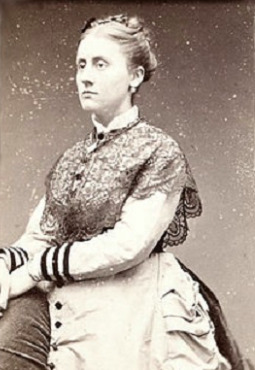
(1844-1927)
Victorine Meurent entre dans l’histoire des arts à seize ans, lorsqu’elle s’inscrit comme modele dans l’atelier de Thomas Couture, peintre d’histoire français qui compte parmi ses élèves Edouard Manet ou encore Pierre Puvis de Chavannes.
Victorine, de par son physique atypique pour l’époque (petite et assez fine, ce qui lui vaut le surnom de « crevette ») est assez vite repérée par Alfred Stevens.

Victorine Meurent peinte par Stevens, 1872
Par (probablement) l’intermédiaire d’Alfred Stevens, elle rencontre Edouard Manet qui l’a fait alors poser en 1862.

Mademoiselle V en costume d’espada
C’est le début d’une longue série. Manet représentera énormément Meurent au cours de sa carrière et il se pourrait qu’ils aient entretenus une relation. Mais les gossips passent après l’importance de Madame Meurent dans l’histoire de la femme modèle.
Là où le destin de Victorine Meurent diffère de celui de n’importe quelle modèle de l’époque c’est lorsqu’elle devient l’élément licencieux de deux tableaux de Manet: Le déjeuner sur l’herbe, 1863 et l’Olympia qui créé scandale lors de son exposition au salon de 63.
Le déjeuner sur l’herbe a une importance cruciale dans l’histoire de la peinture moderne mais vous l’avez surement déjà étudié au lycée donc je m’épargne l’analyse de celui-ci. Parlons plutôt de l’Olympia.
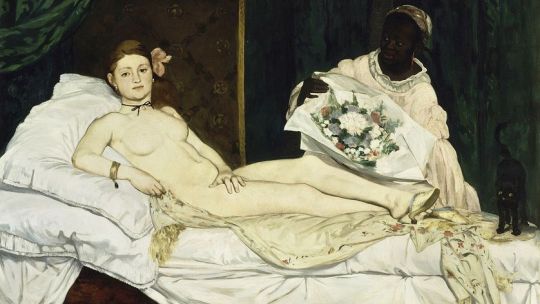
Manet n’avait pas pour ambition de produire une peinture licencieuse mais de representer le vrai, “j’ai fait ce que j’ai vu”. C’est ce réalisme qui en fait une oeuvre de rupture, une oeuvre scandaleuse. Le tableau s’inscrit dans les codes de la peinture classique. Victorine est représentée comme une venus.

Venus d’Urbino, Titien, 1538
La présence de la femme à droite, le chien remplacé par un chat, tous les éléments montrent que Manet s’est nettement inspiré d’une peinture classique. Cependant, les changements effectués, le fait de passer d’une figure mythologique à Olympia, pseudonyme de demi-mondaine. Le chat noir, symbole de la sexualité, de la lubricité, remplace le chien. Les pieds abimés de la femme attire l’oeil du public qui l’associe immédiatement à une prostituée travaillant dans la rue. Et la femme lui apporte surement une offrande d’un de ces clients.
À cette époque le nu n’était acceptable que s’il avait attrait à un environnement mythologique ou exotique, quel scandale alors de représenter une femme du peuple!
En plus d’être une femme du peuple, Victorine Meurent est surtout une femme dans son individualité, une femme représentée en tant qu’elle même et non un pis-aller pour figurer une déesse, dont la nudité est acceptable.

La grande odalisque, Ingres, 1814
Cette peinture, par exemple, légitime le nu par l’utilisation des fantasmes orientalistes. Ce qui est aussi intéressant par rapport à la représentation du corps de la femme, c’est qu’anatomiquement, son corps est incorrect. En effet, l’odalisque à une vertèbre en plus.
Alors, lorsque Victorine est peinte telle quelle, avec ses jambes courtes et son regard fixe, comme defiant le regardeur, on ne peut qu’imaginer l’ampleur du scandale. On reprocha d’ailleurs à Manet d’avoir peint une figure pas assez jolie.
“Il y a des bourgeois qui, visitant le salon, ont voulu percer la toile avec leur parapluie, ils trouvaient cela indécent”
Eric Darragon
Après cela, Victorine pose encore pour différents tableaux de Manet.
À la fin des années 60, elle part aux États Unis. Elle apprend alors à peindre. À son retour en France elle suit des cours à l’académie Julian, prestigieuse école qui a formé, entre autres, Emil Nolde, Mucha, André Derain, Fernand Léger, et même Marcel Duchamp.
Elle connaît alors un certain succès, elle est accepté à plusieurs reprises aux salons tandis que Manet essuie des refus.
Malheureusement (et sans grande surprise) seuls deux de ses tableaux sont identifiés aujourd’hui.

Le jour des rameaux, Victorine Meurent, v. 1880
Pourtant importante dans l’histoire des arts, on a aujourd’hui très peu de sources à son propos. Elle apparaît parfois dans des fictions à la fin du XXe mais est bien trop associée à Manet ou à sa relation avec une femme à la fin du XIXe.
Il est indéniable qu’elle a néanmoins bâti les premiers jalons d’une nouvelle façon d’aborder le modèle féminin. En faisant l’objet de diverses representations elle a souvent été représentée en tant qu’individu, au delà du carcan des moeurs qui cantonnait les femmes à n’être que des reflets d’images tolérés. Elle a entrainé une fascination qui, en dépit de son physique hors normes, en a fait une figure majeure de la transition XIXe/XXe.
En 1904, elle est d’ailleurs sur un tableau d’André Devambe

qui ne la représente pas de façon esthétique. Ce tableau intitulé les incompris présente des artistes attablés à un cafe. Un des hommes est probablement Verlaine. Victorine, le journal L’art à la main et le coude sur une boîte de peinture est là bien représentée en tant qu’artiste de son temps et non comme “le modele de Manet”.
Elle a réussi, dans une époque où l’art était un domaine difficile d’accès aux femmes, à exister individuellement et non comme relation d’un homme.
Et lorsque le peintre contemporain John Behm peint Susie Maguire en 1993, il intitule le tableau Considering Victorine Meurent.
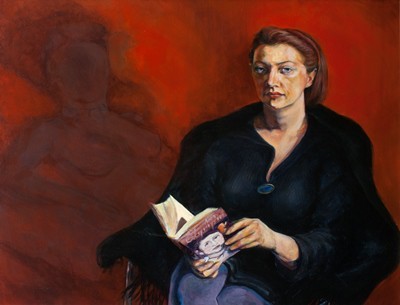
Il choisit ce titre après s’être intéressé à la vie de Victorine et la considère comme
"absolute archetype for the way in which [non-conformist] individuals within our society…can be misunderstood and misrepresented."
(l’archetype absolu de la manière dont les individus (non conformistes) peuvent être mal compris et mal représentés dans notre société.
Sur cette peinture, la nouvelliste Susie Maguire “réfléchit sur sa vie et sa lutte” et apparait alors derrière elle l’ombre de Victorine, symbole alors de la femme artiste, déterminée, voulant exister pour sa propre oeuvre et non soumises aux désirs des hommes de son époque.
Ainsi, le terme de modèle devient sylleptique pour Victorine Meurent. Elle fut à la fois un modèle posant pour les plus grands peintres de son époque et un modèle source d’inspiration jusqu’aujourd’hui.
8 notes
·
View notes